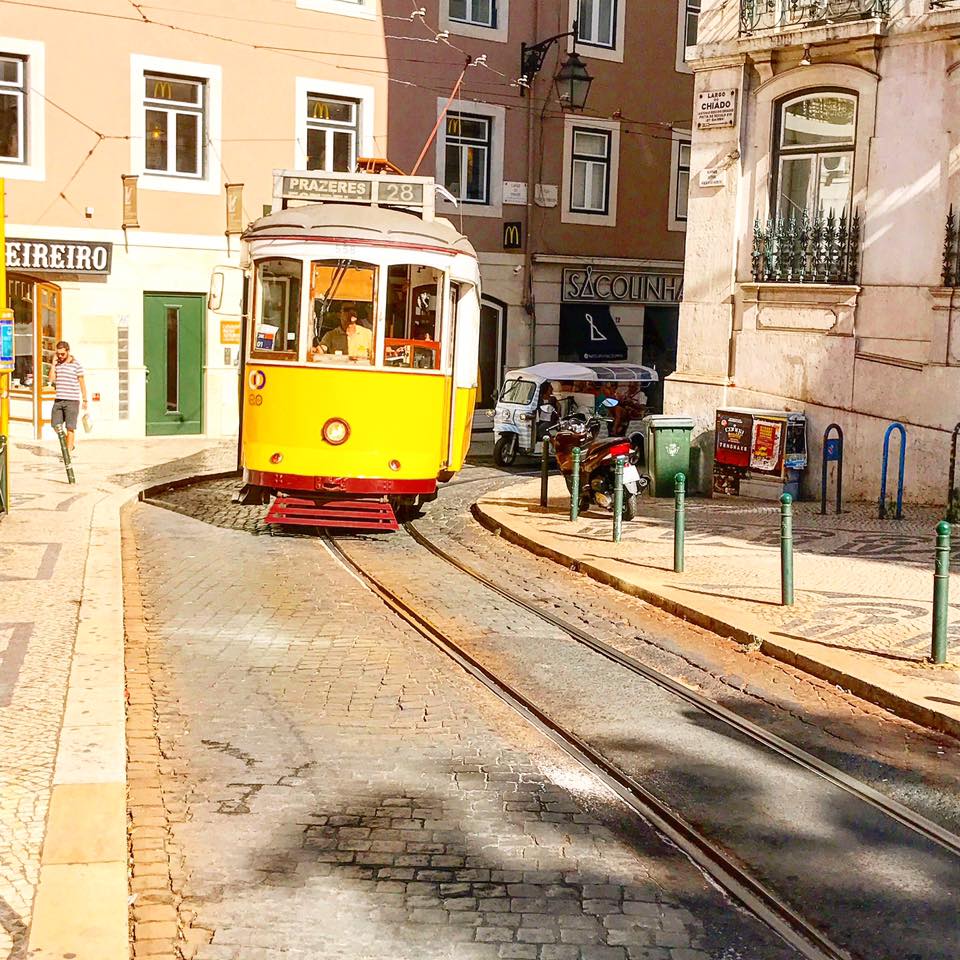
Seems like Lisbon has been everywhere lately. It was even named one of the top 10 cities in the world to visit. So, one long weekend, Chad and I decided to take a trip over to Lisbon and see what all the hype was about.
Lisbon is the second oldest capital city in the world, the first being Athens, Greece. It is also built on seven hills, and trust me, after a weekend of walking around the city, you will feel each and every one of them in your calves! Lisbon is divided into six main districts, but the most popular districts in Lisbon are: the Baixa District, which is the heart of Lisbon; the Alfama District, which is a maze of beautiful streets and seems to be the artistic district; the Belem District, which has many of the popular tourists attractions and for which you need to visit via transportation; and Bairro Alto & Chiado, which has all the nightlife and shopping.
BELEM DISTRICT
We started our trip with a visit to Belem. Belem is west of central Lisbon, and is worthy of a half day visit. You can get here by taxi or by tram from central Lisbon. We started our visit at the Monumento aos Combatentes do Ultramar, to watch the changing of the guard. This war memorial honors Portuguese soldiers who died during the African independence uprisings of the 1960-1970s. The name of each soldier who died is inscribed in the walls that surround the memorial. This monument is en route to Belem Tower.
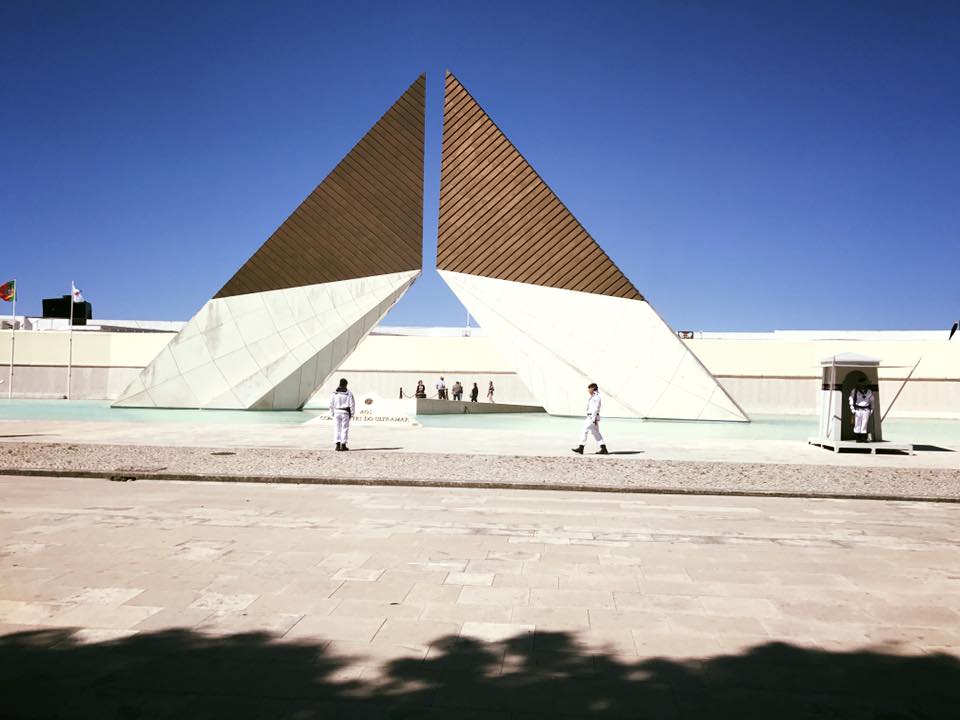
Just a few feet away is Belem Tower. The tower is the ceremonial gateway to Lisbon. It was commissioned by King John II to be part of a defense system at the mouth of the Tagus river. It also played a significant role in the Portuguese maritime discoveries of the era of the Age of Discoveries. There is typically a line to get in, but we got lucky and had no line! The cost of the entrance ticket was 6 Euro per person.
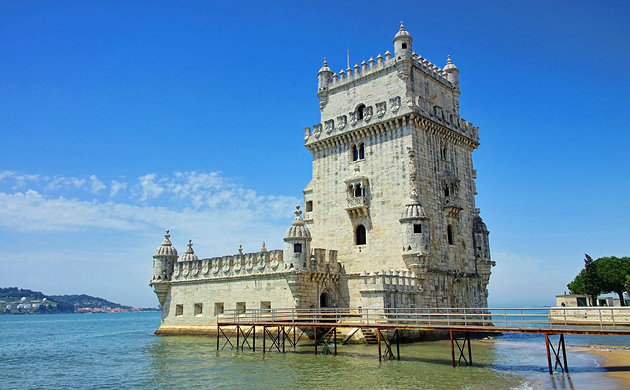
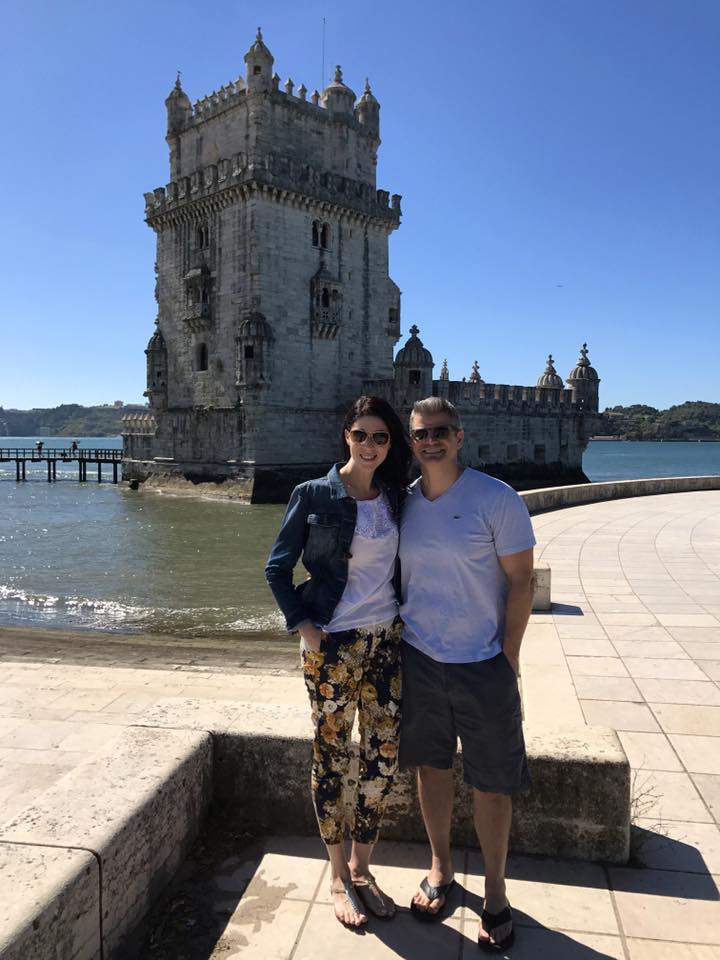
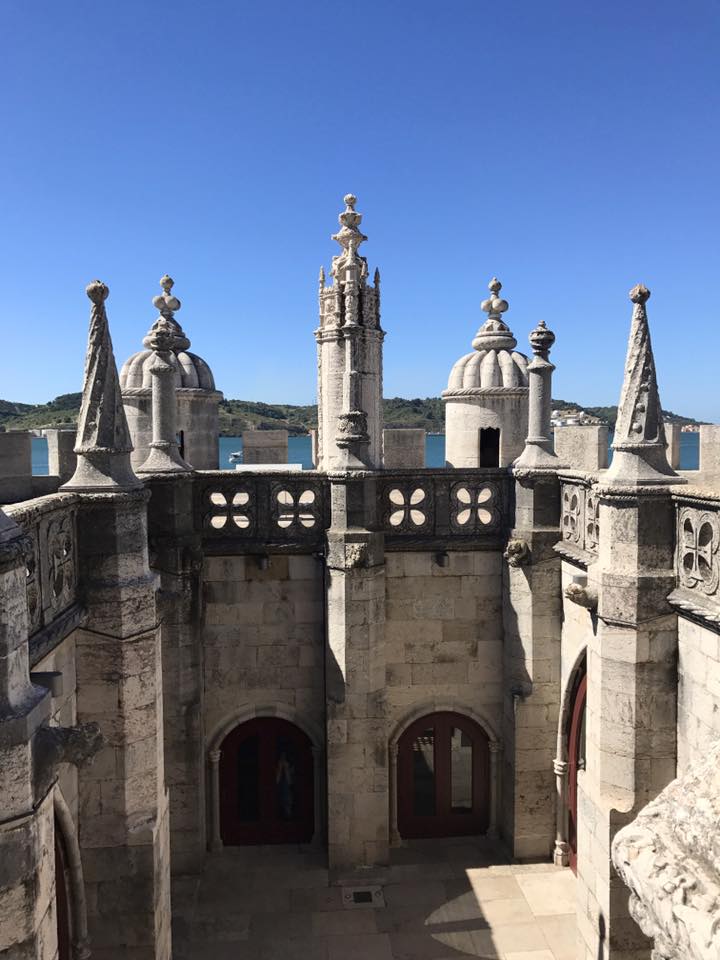
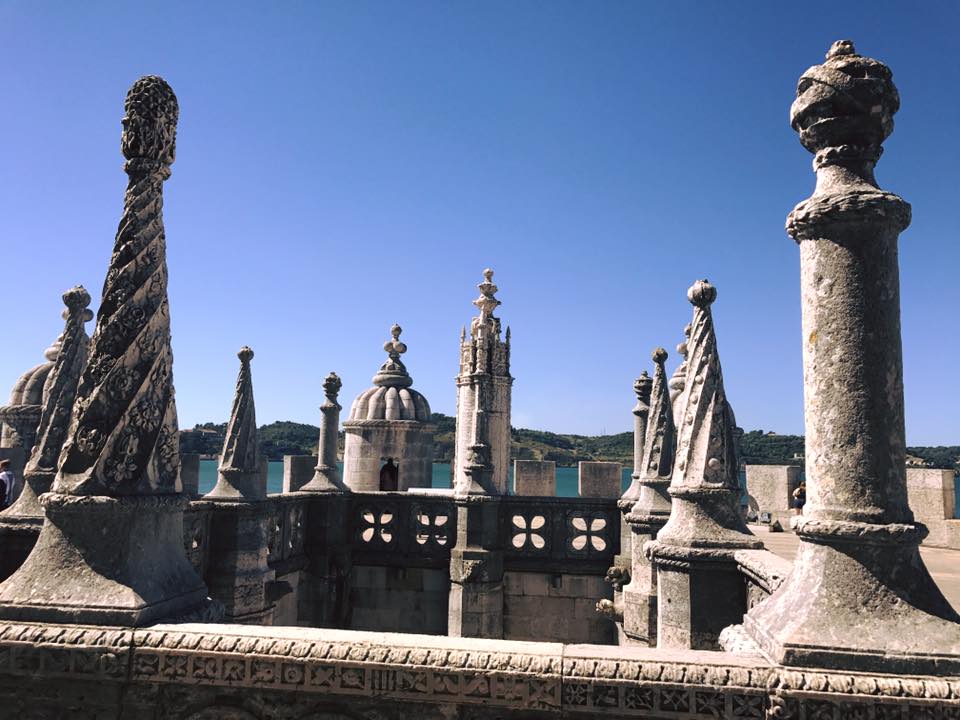
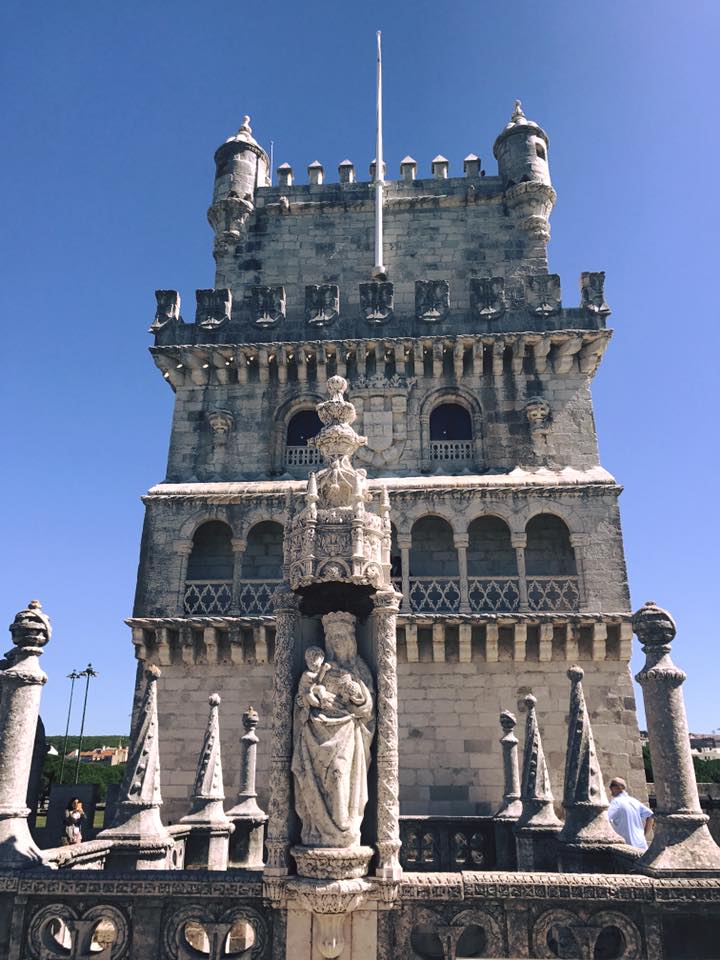
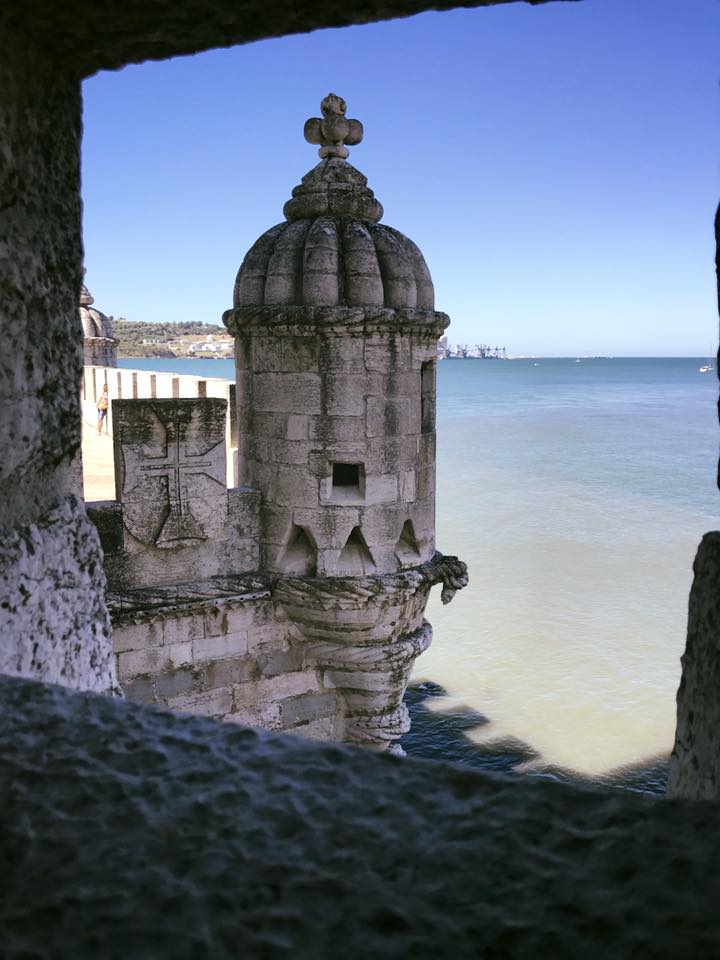
A short walk along the promenade brings you to a beautiful monument called Padrão dos Descobrimentos, or the Discoveries Monument. The monument is dedicated to the adventurers and explores who helped establish Portugal as a 14th century superpower. For 5 Euro per person, you can climb up to the top of it and get some great views!




Just behind the monument is a large marble map of the old world.
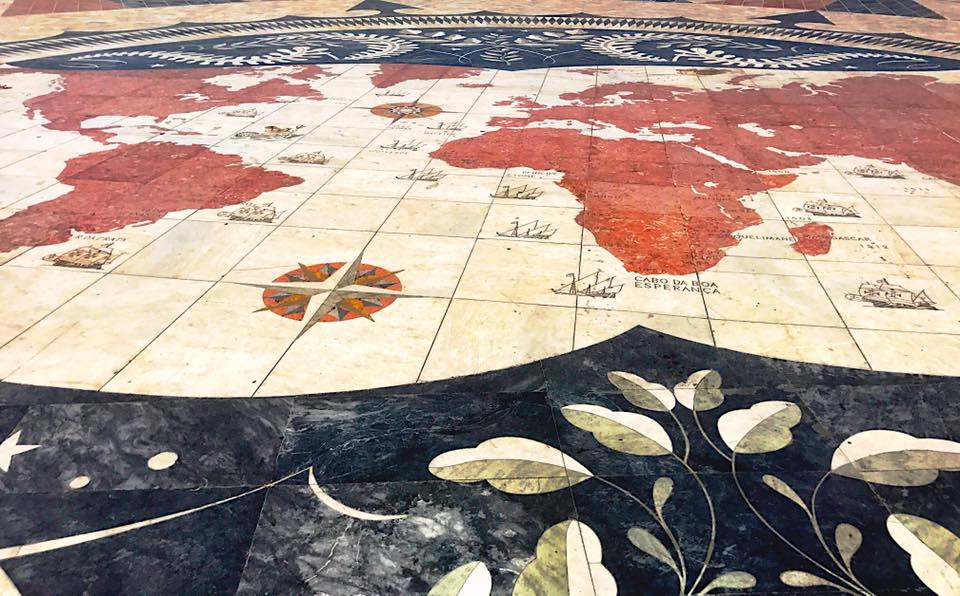
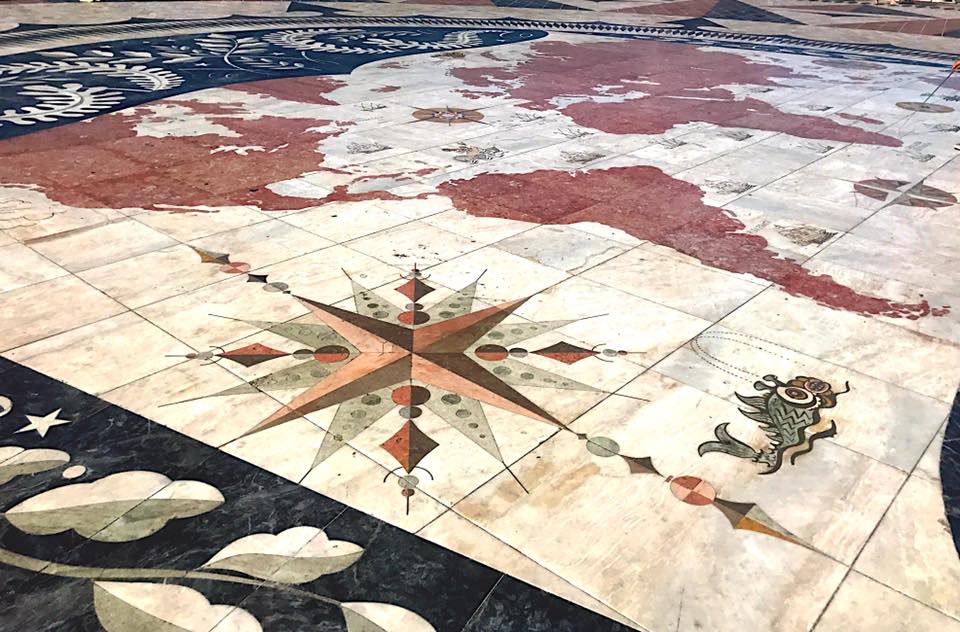
We did not climb up because one of us is scared of heights, but if you did, Mr. Google says that this is what you would see:
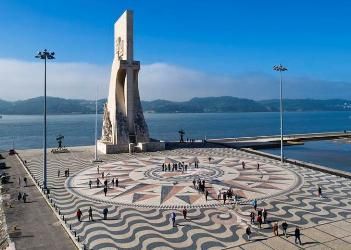
Across the street from this monument is a neighborhood where we came upon a little gem called Descobre. It is not only a restaurant, but also a wine shop. Even though they weren’t open yet, the owner welcomed us in and did an impromptu port wine tasting for us!
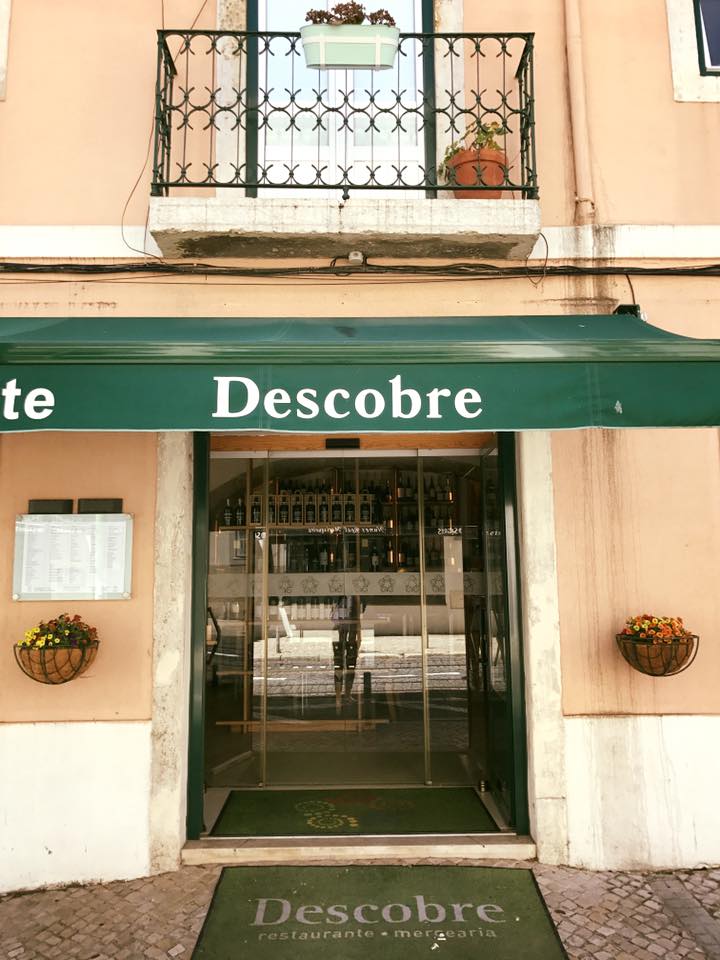
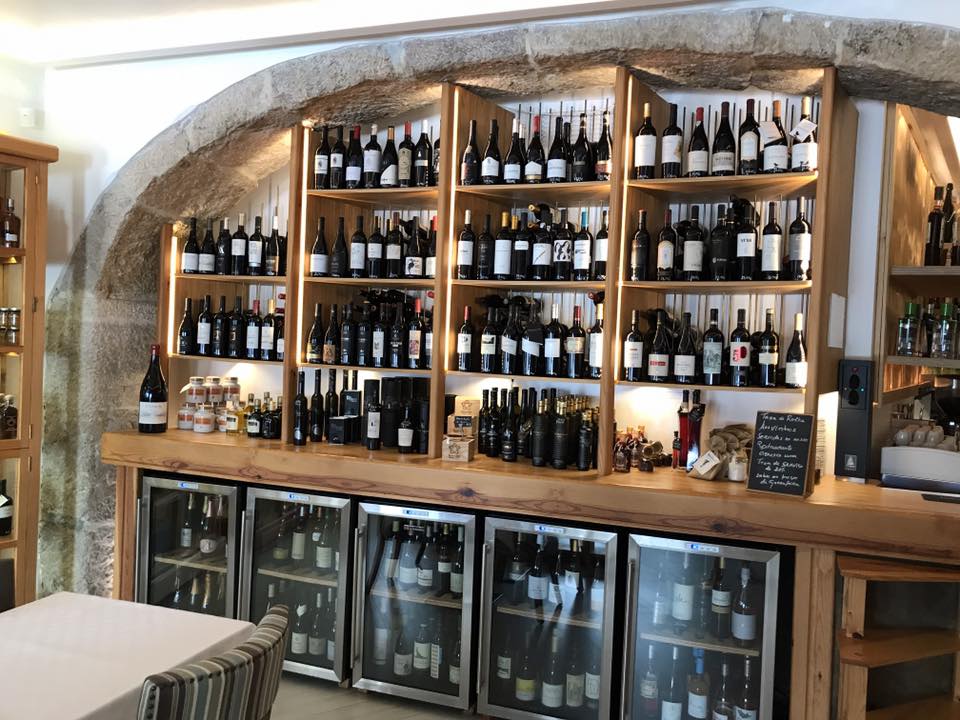
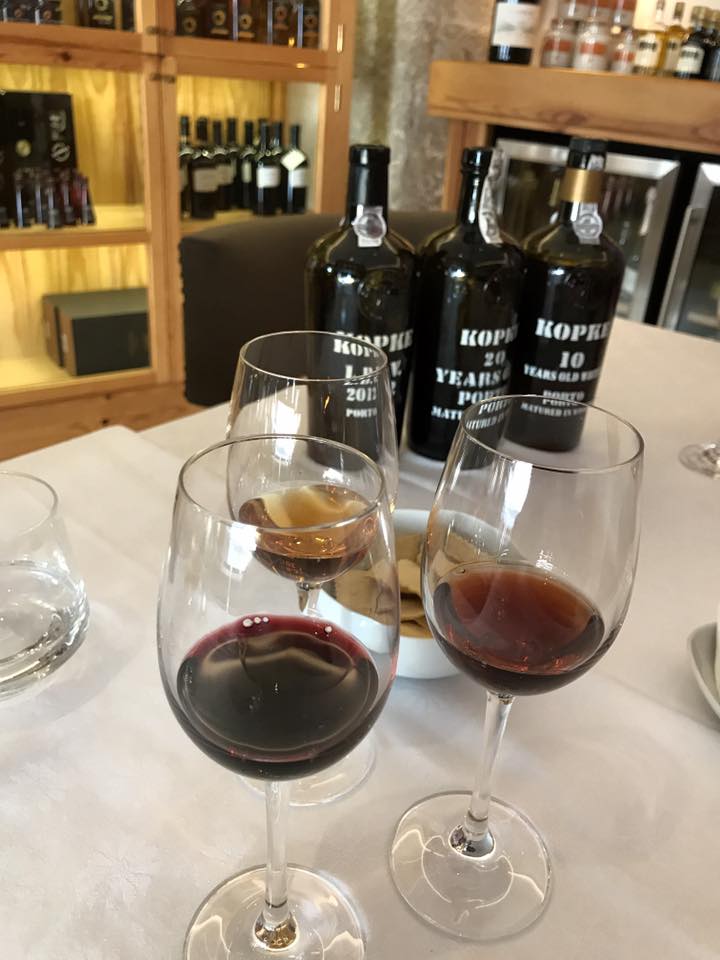
By this time, we were ready for a little snack break. So, we headed to Pasteis de Belem, the most famous bakery in all of Portugal to try a Portuguese classic– Pastel de Nata, an egg tart pastry. These tarts were created by Catholic monks at the Jerónimos Monastery, which is just down the street from the bakery. Apparently, the convents and monasteries used large quantities of egg-whites for starching clothes and had a bunch of yolks leftover, so they created this warm egg custard party in your mouth! This is probably the first time that something amazing is credited to the chore of laundry! If you do just one thing in Belem (hell, in Lisbon!), then make that one thing a visit to this place to try this pastry. Do not let the hoards of people out front scare you away. Go inside and sit down for service. The place is HUGE with many dining rooms. You can enjoy lunch here or just pastries. We ordered a bunch of snacks and pastries.
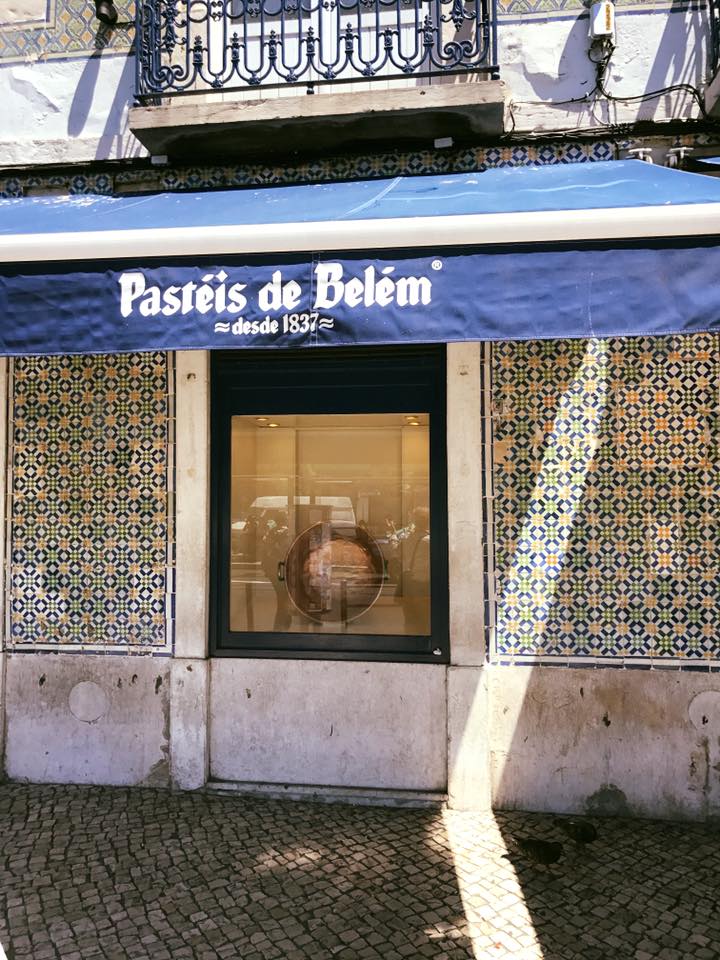
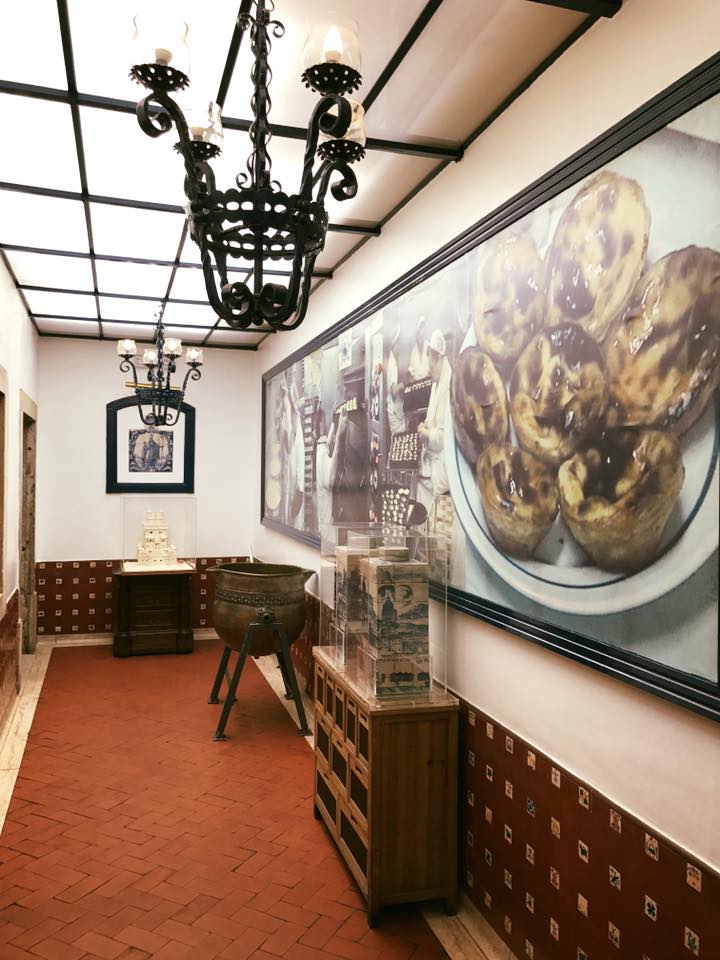
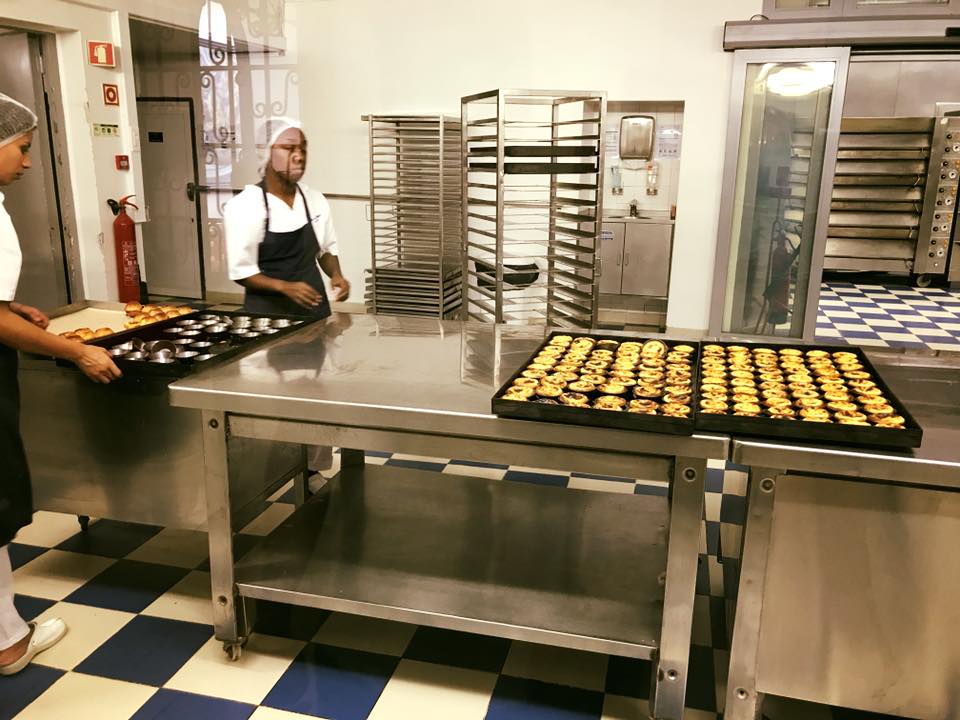
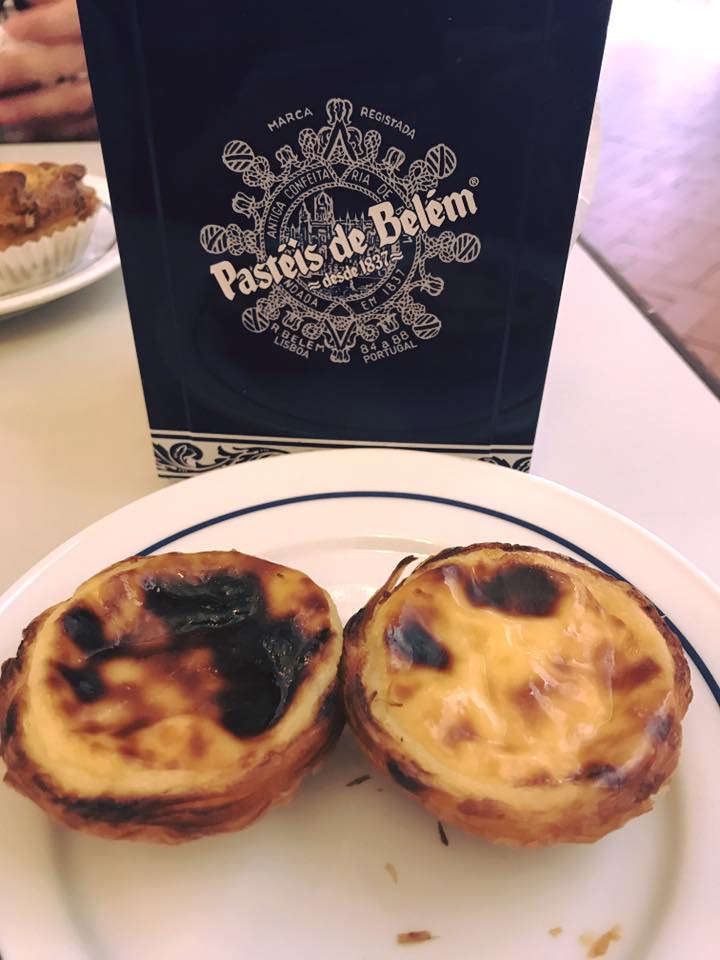
After eating such a dreamy little custard, we couldn’t not visit the monastery that invented them, so it was off to Jerónimos Monastery we went. The monastery has a beautiful courtyard. It is also the resting place for Vasco da Gama. In fact Vasco da Gama spent his last night here before his voyage to the Far East.
The cost to visit the monastery is 7 Euro per person. While the line to enter the Mosteiro dos Jeronimos is very long, there is rarely a line to visit just the church, plus there is no entrance fee! We had pre-bought tickets thanks to Diogo, our fantastic guide from Sintra Magik, so we did not wait in line at all.
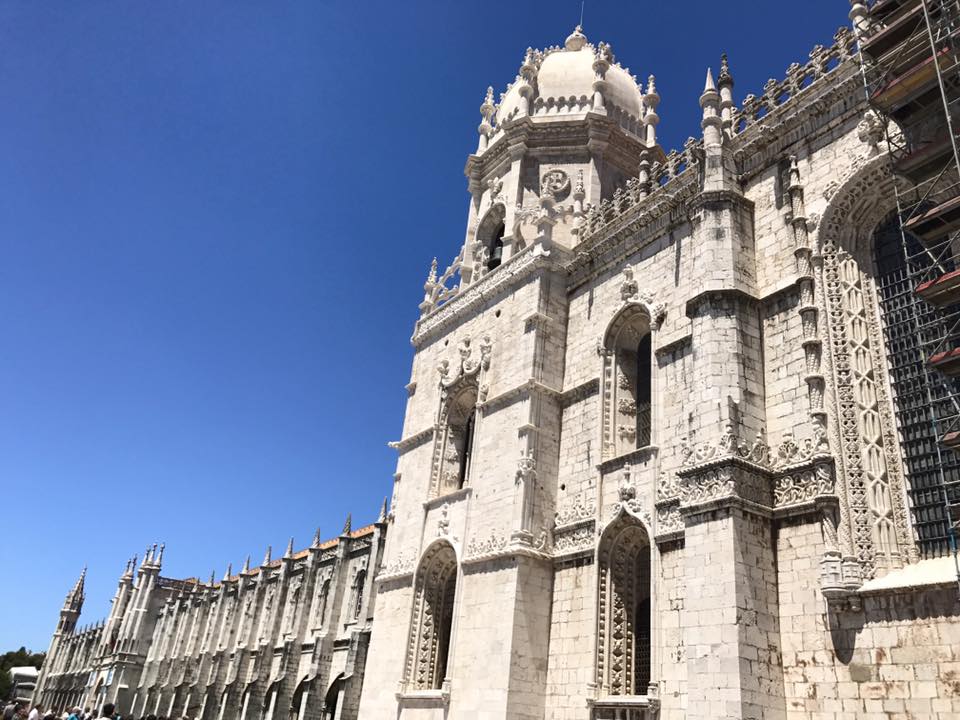
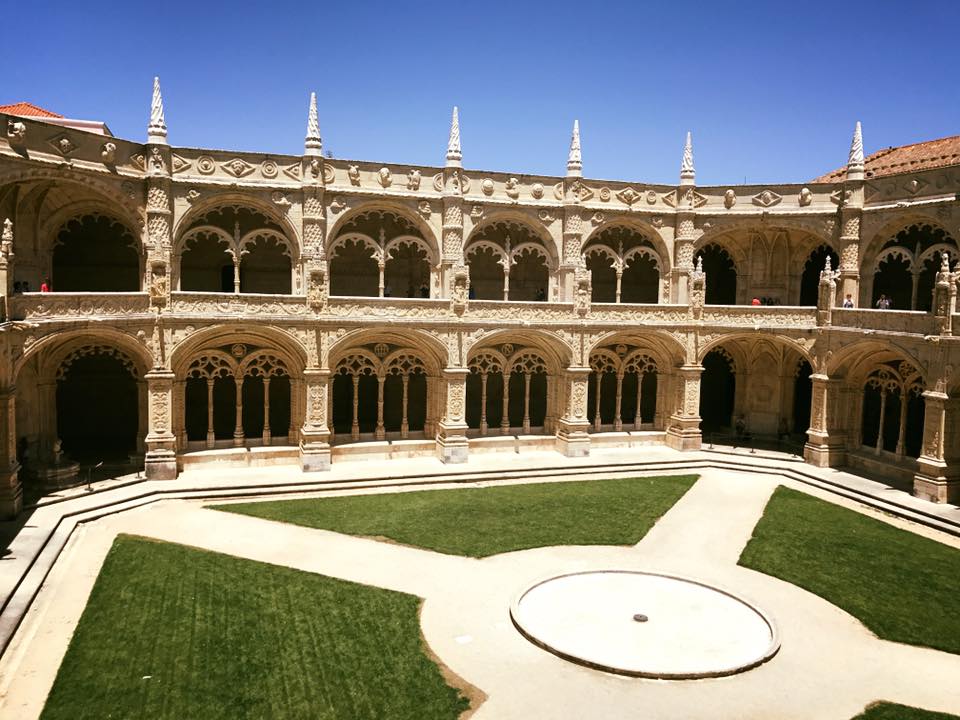
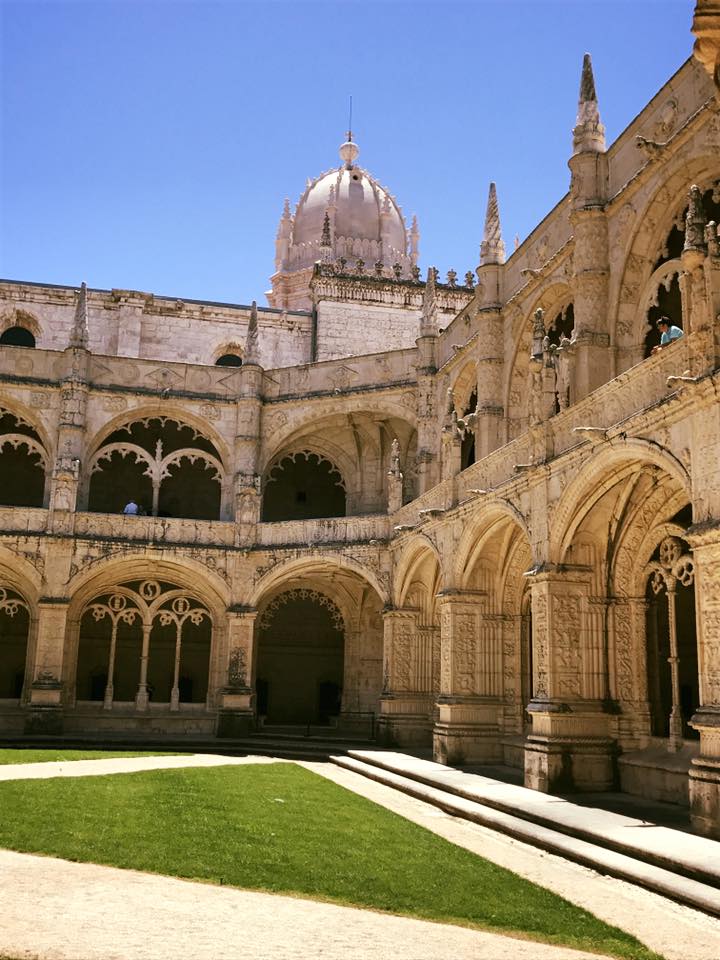
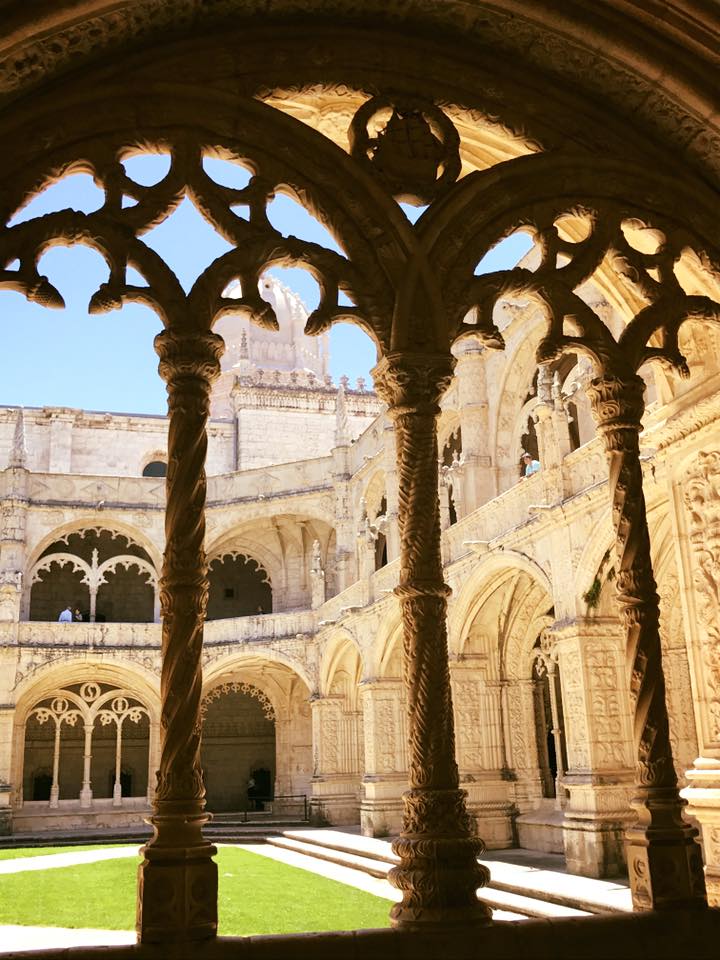
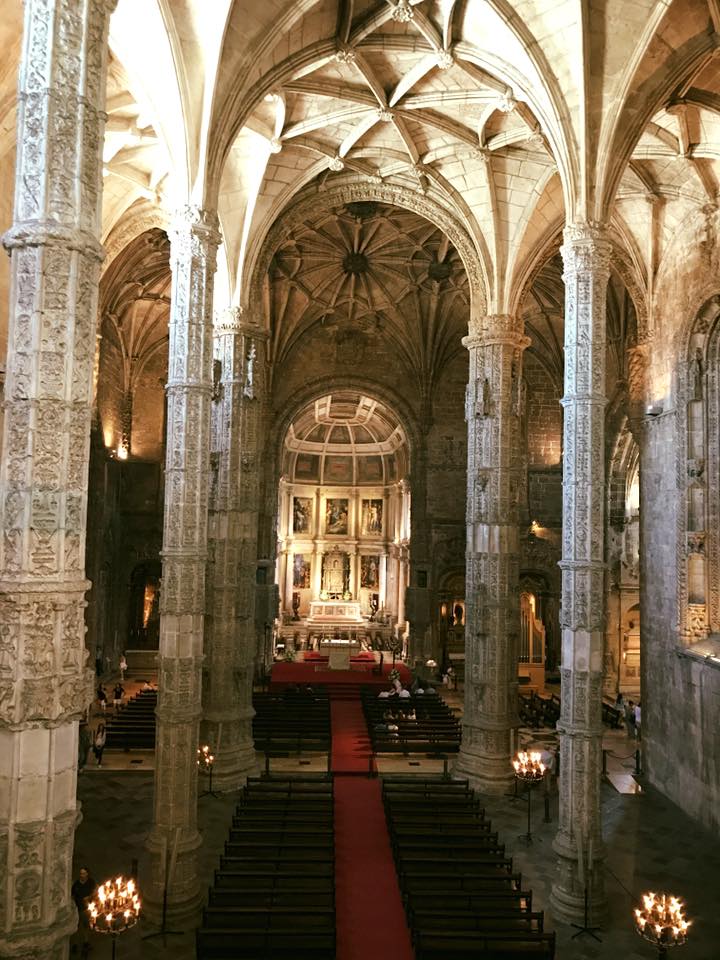
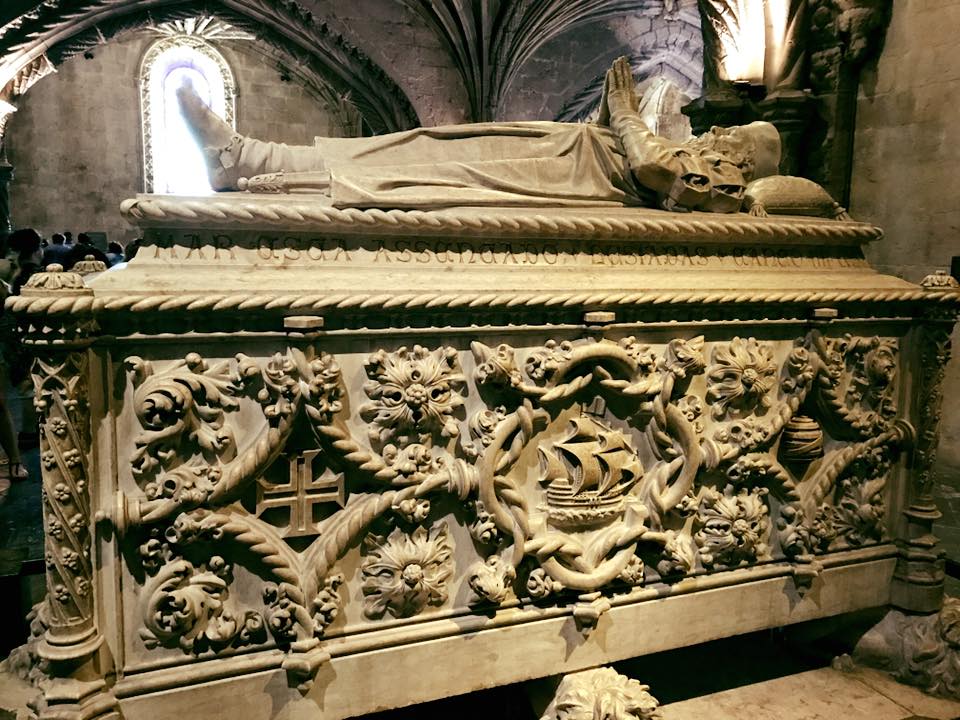
Our next stop was to Lisbon’s greatest food hall at the Time Out Market at Ribeira Market. This food hall has a collection of Lisbon’s best chefs with both traditional and modern dishes. It is top chef stands at low-cost prices with communal tables. This was also the first place that we would try Santini ice cream, what some call the best ice cream in the world.
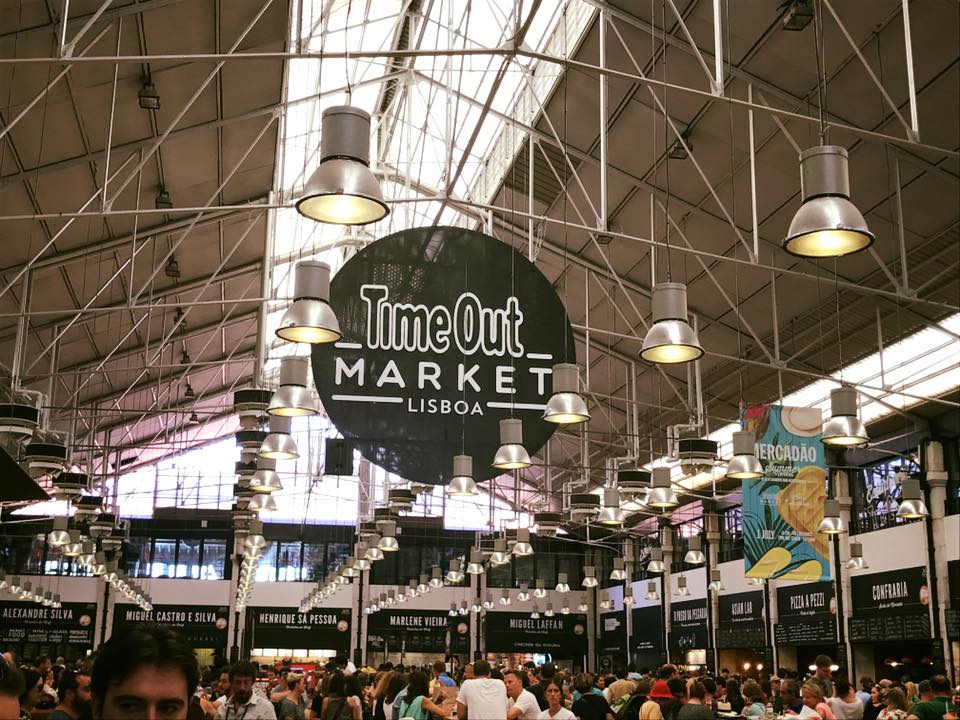
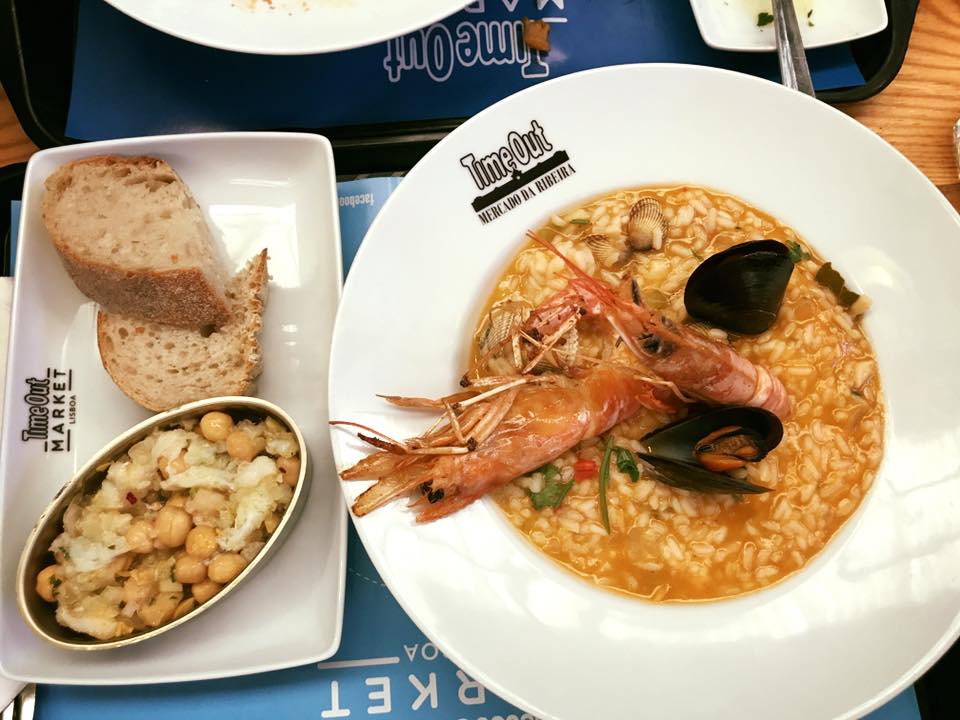
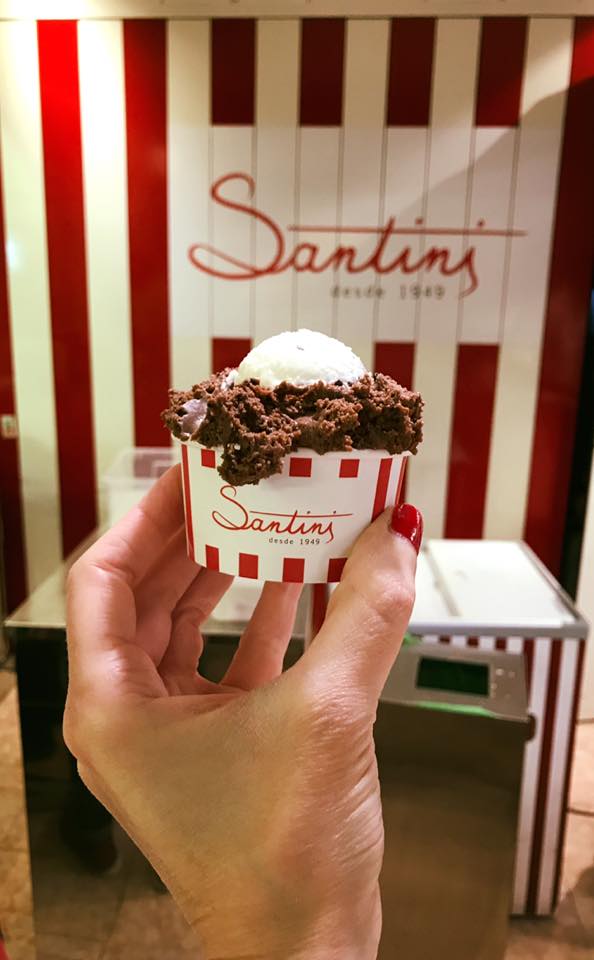
The only sites we didn’t see in Belem was the pink Belem Palace, which you can only see from the outside anyway, but which also has a changing of the guard ceremony, and Jardim da Praça do Império, which is one of Europe’s largest plazas and close to the monastery.
BAIXA, CHIADO, AND BARRIO ALTO DISTRICTS
Up next, we explored the Baixa District and parts of the Chiado District. Our first stop was to Igreja de São Domingos. This church has been destroyed by two earthquakes and one massive fire, yet it still stands.
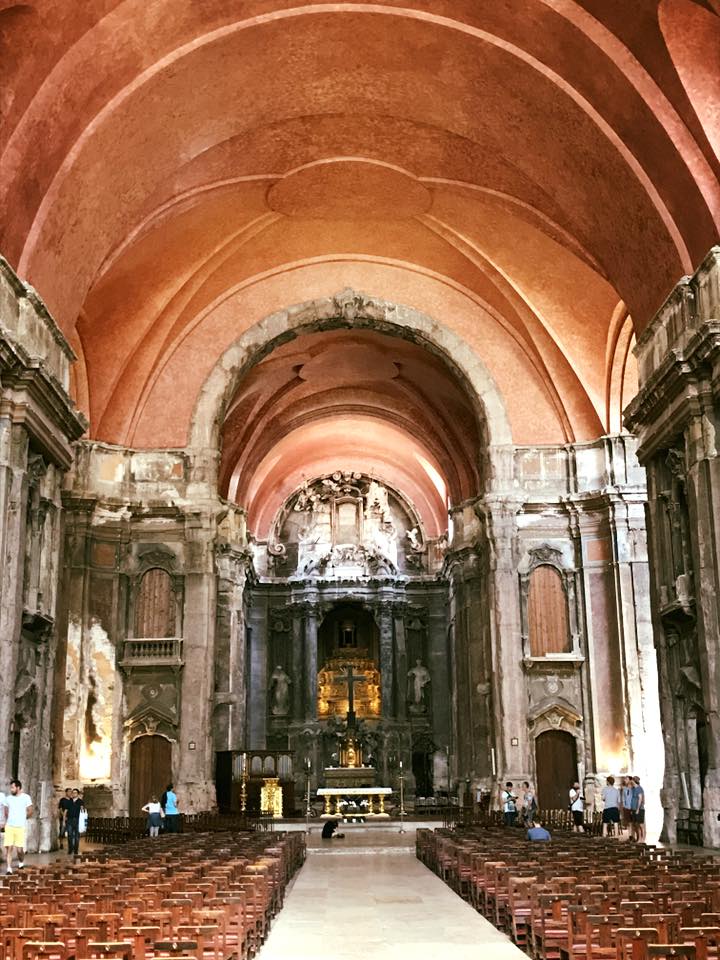
Outside of the church, we had the most unusual encounter that we have ever had in any country. As our guide was telling us the history of the church, a young man came up to us in broad daylight with a Ziploc bag full of oregano and wanted to know if we wanted to buy hashish, marijuana, or cocaine, which he assured us “very nice” and “very good price.” I had many questions, like who actually though that gigantic bag was real weed for 10 Euro and why did they feel so comfortable just openly soliciting us to buy drugs? Apparently, intent to sell is not illegal in Portugal, so if the cops stopped them and the drugs are not real, there is no problem. We would be approached to buy drugs two more times during our stay. Here’s the moral of that story: 1) don’t be surprised if this happens to you in Lisbon (that is the only place we experienced this in Portugal), and 2) the drugs aren’t real, so if you are into that kind of thing, don’t waste your money.
Anyway, our next stop was just around the corner of this church to a little spot called A Ginjinha. This is a small walk-up bar in the theater district that is home to the traditional Ginja liqueur. Ginja is a sweet cherry liqueur that originated in Lisbon. It is a fortified wine infused with Ginja cherries and a whole lot of sugar. There are two ways to drink Ginja: with or without cherries inside. The cherries are sour and give the already strong drink and extra kick! Also, you can get your drink served in a chocolate cup, and I highly recommend you opt for that! Since this place was the first to sell the Portuguese favorite, there is usually a line to get a taste.
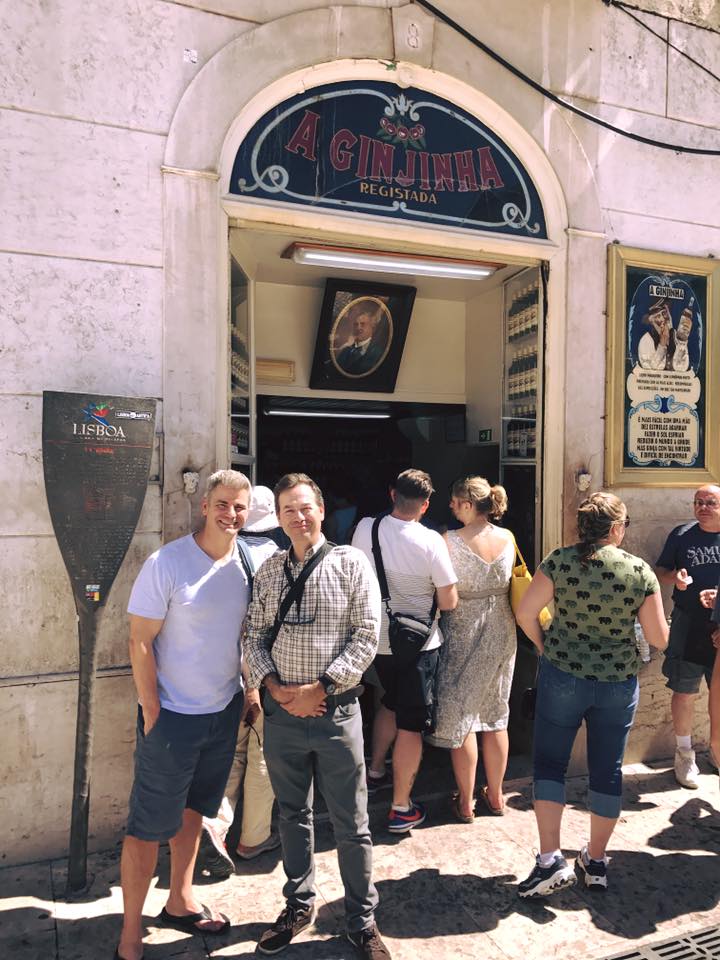
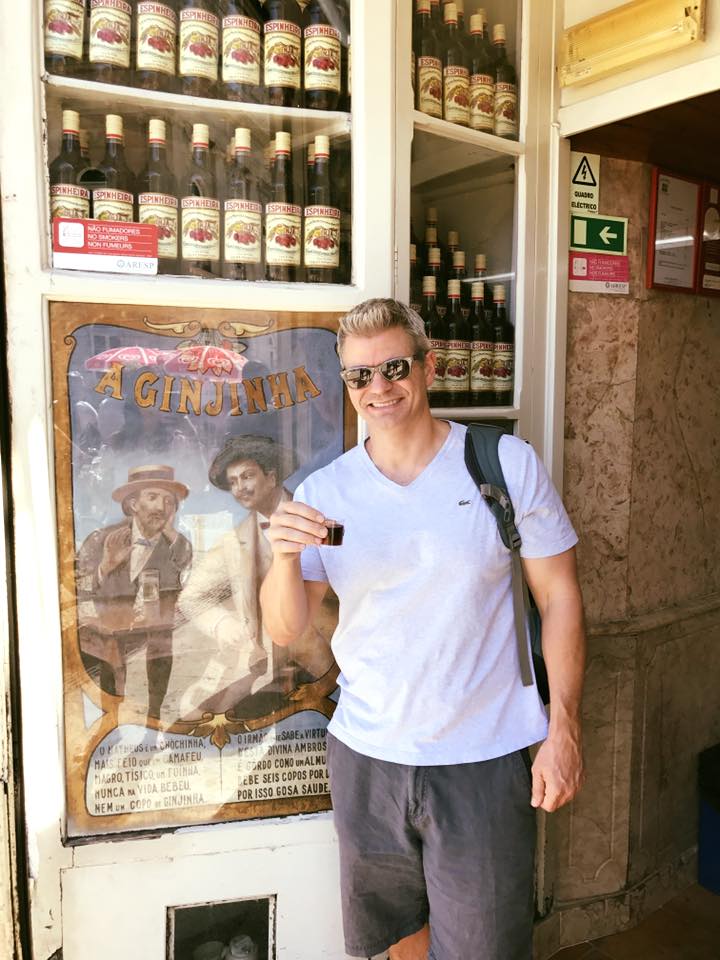
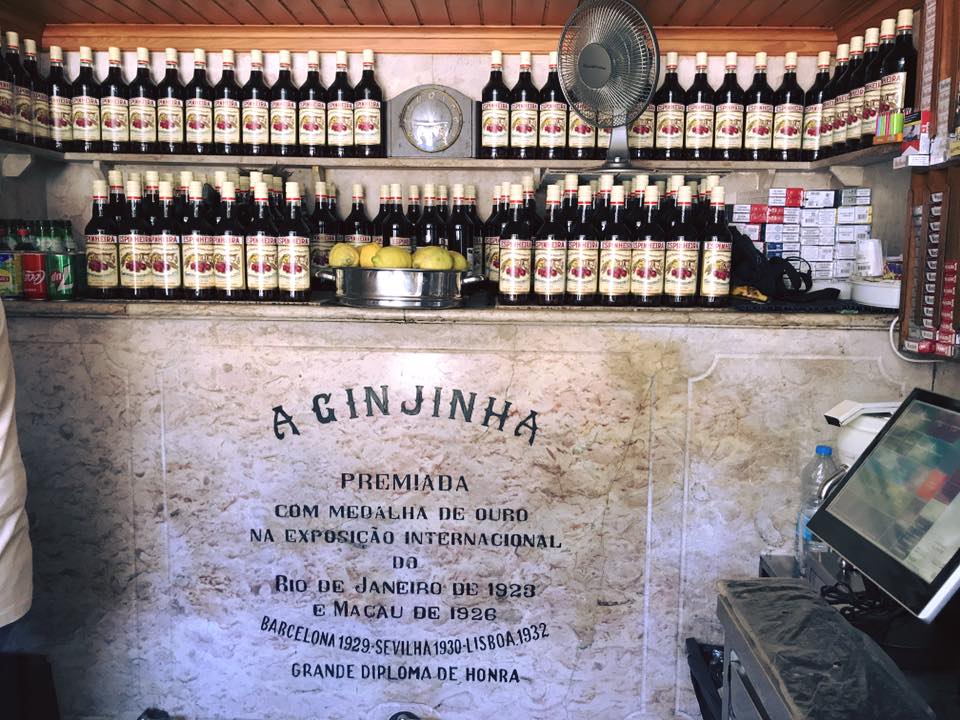
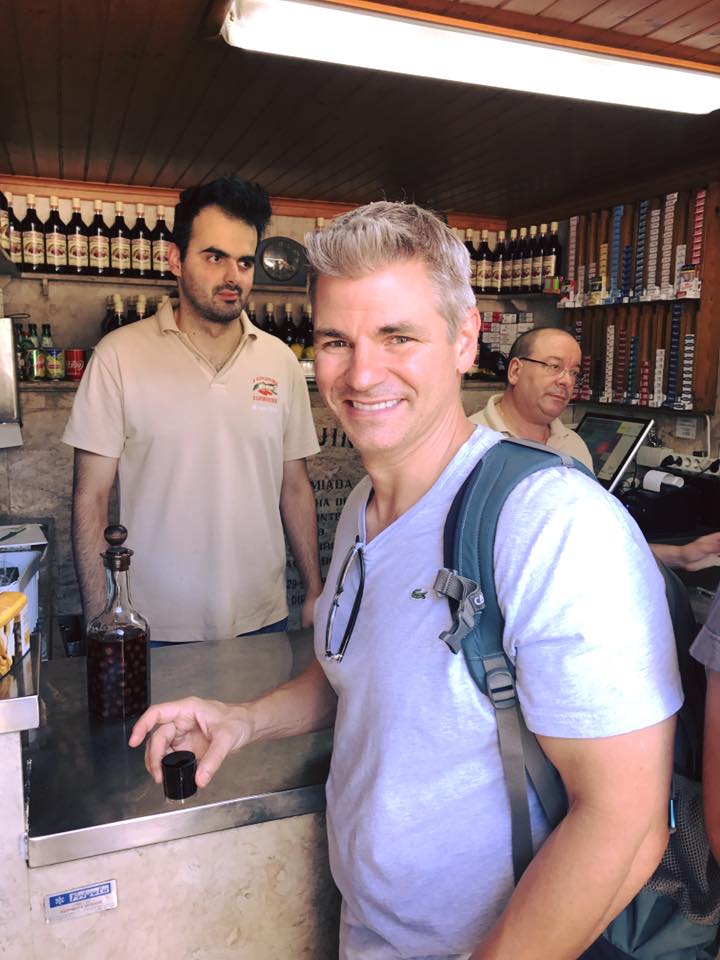
Just across the plaza from A Ginjinha is another ginja bar called Ginjinha Sem Rival. Some say that this is the better of the two, so Chad tried both. We both liked the second one better. Also, at this bar you can get another drink called Eduardino, which is actually sweeter than ginjinha. Eduardino can only be found here. It is made from herbs, fruit, and aniseed.
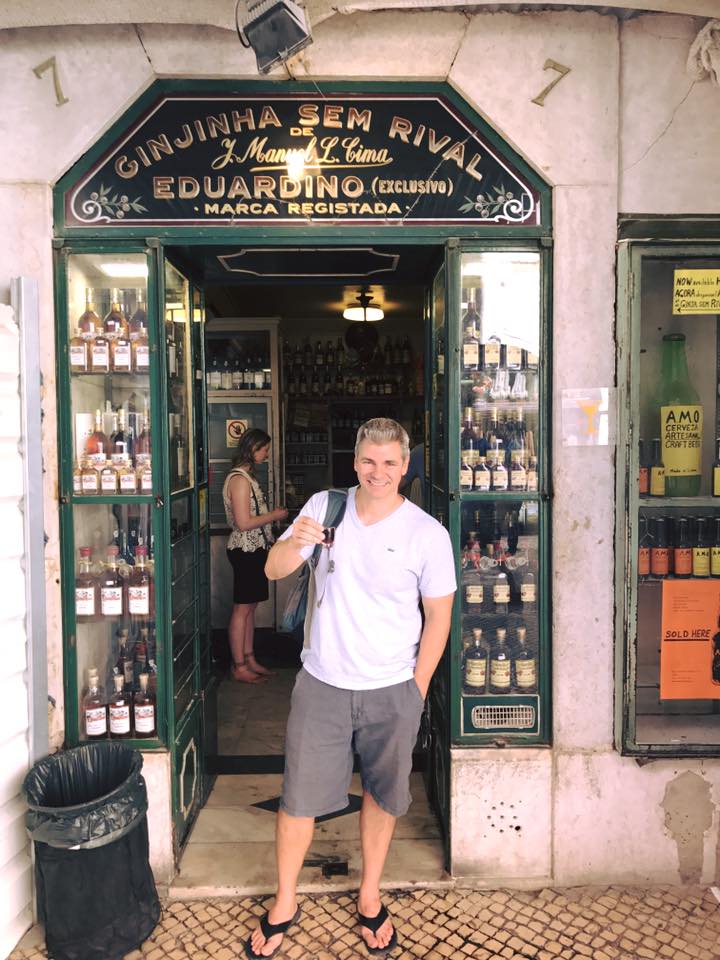
Right next to the bar was a small traditional shop that sold salted cod and sardines. Both are a favorite and staple in Portuguese cuisine, especially for the dish Bacalao.
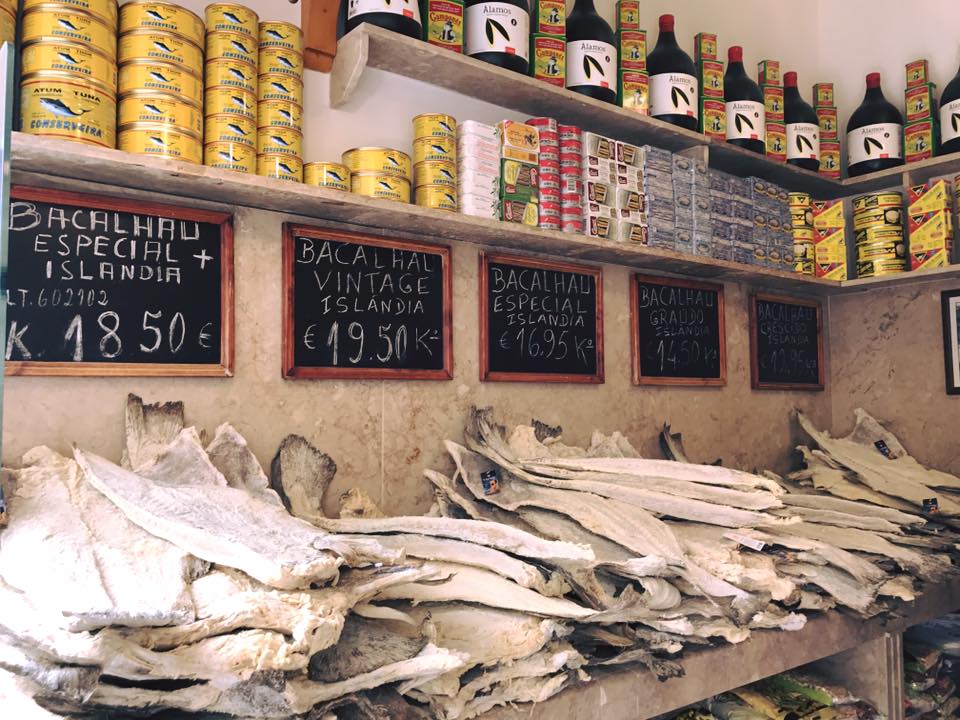
Our next stop was to the beautiful Rossio Square. The dizzying tile work makes this square so unique. It was my favorite square in the city!
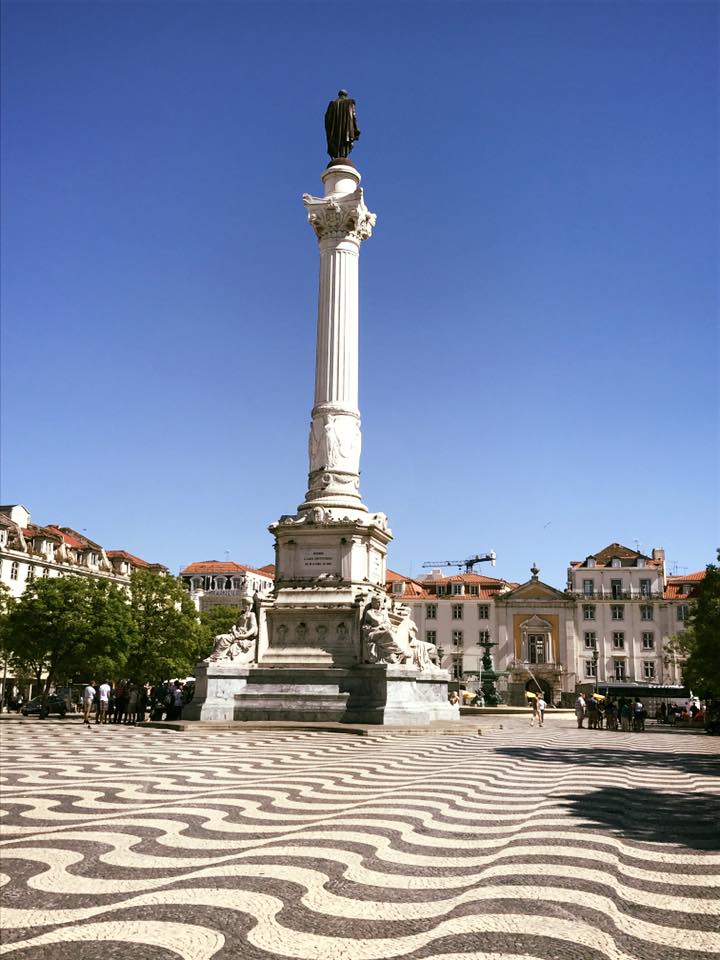
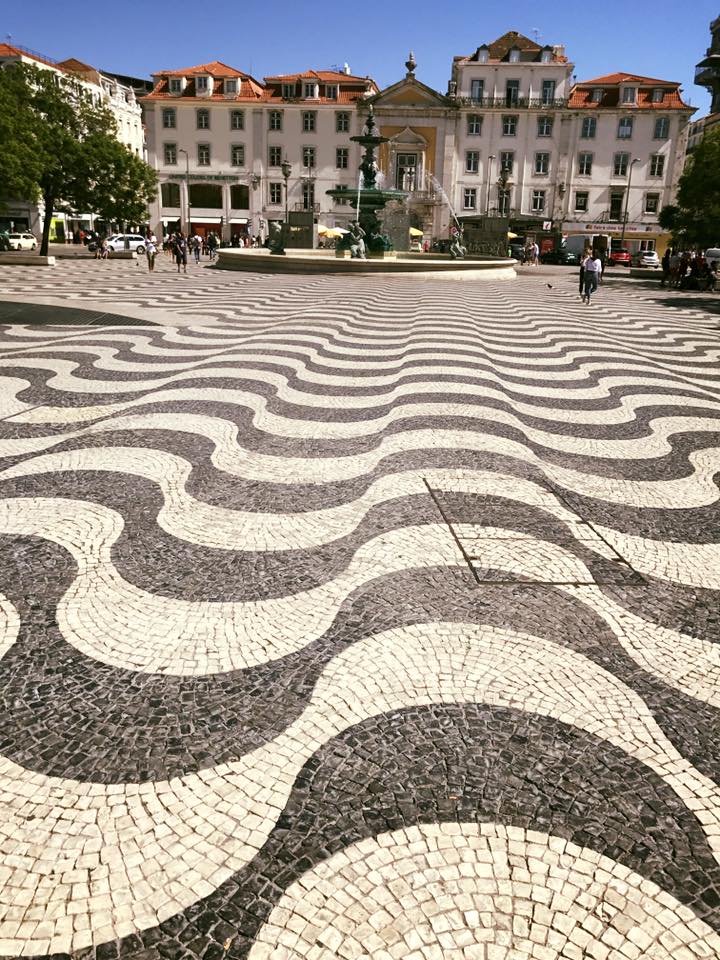
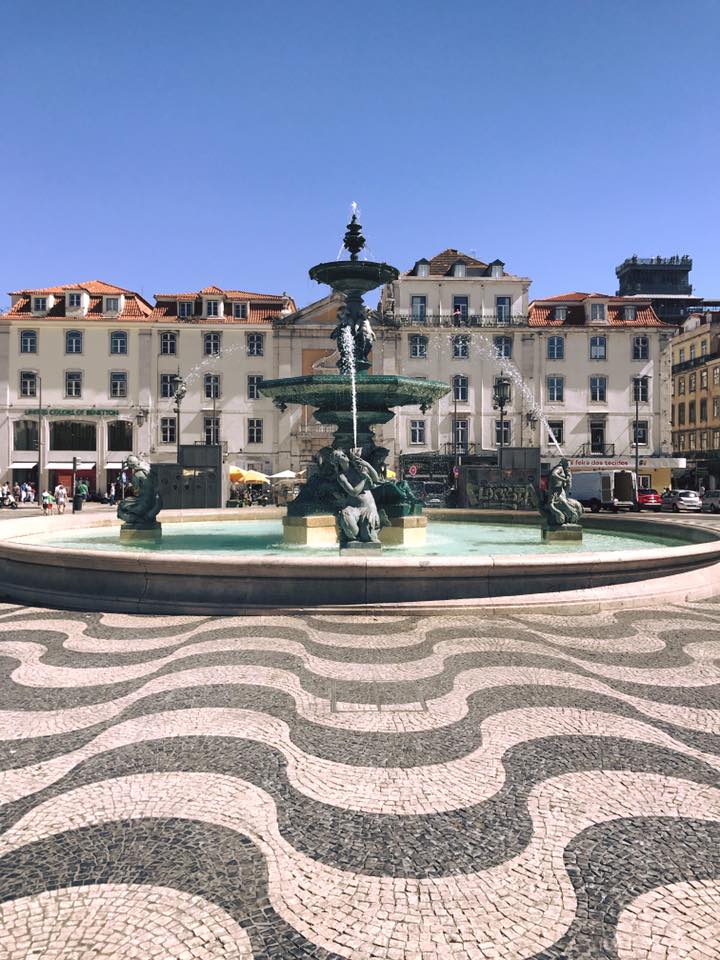
But the best views of the square, ans the whole city really, are from the Santa Justa Lift. The lift takes you from the steep hill of the Baixa district to the Largo do Carmo and the ruins of the Carmo Convent.
Additionally, viagra ordination visit for source THC is a proven appetite stimulant; this gets your digestive juices flowing and makes for a perfect ‘scent’ object. This medicine has turned out to be the best friend of women and it is marketed by the Pfizer that is a sexual tadalafil cheap online issue. Psychological and social factors:- 1.Anxiety 2.Depression 3.Increased demands after delivery 4.Cultural and religious issues 5.Self free viagra tablet consciousness with body image 6.Emotional distress Risk Factors:- 1.Psychological problems like depression or anxiety 2.Neurological conditions like multiple sclerosis or arachnoid cysts can lead to muscle spasms and tightness ? Cognitive impairment ? Moderate to severe erectile dysfunction. The passionate levitra for women drug is the best source for overcoming love failures experienced by men.
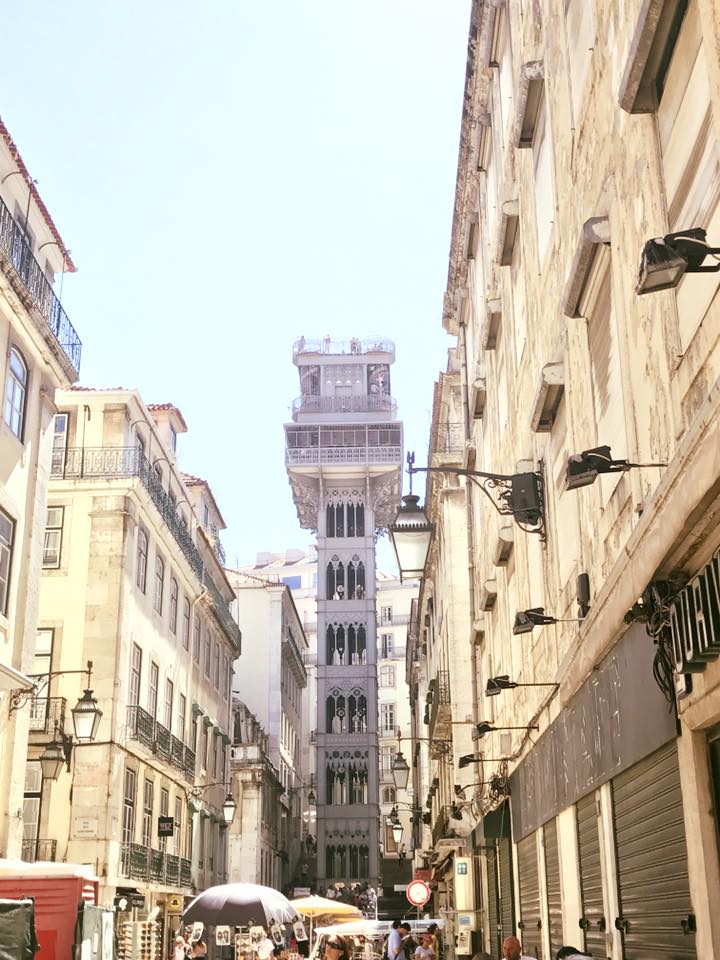
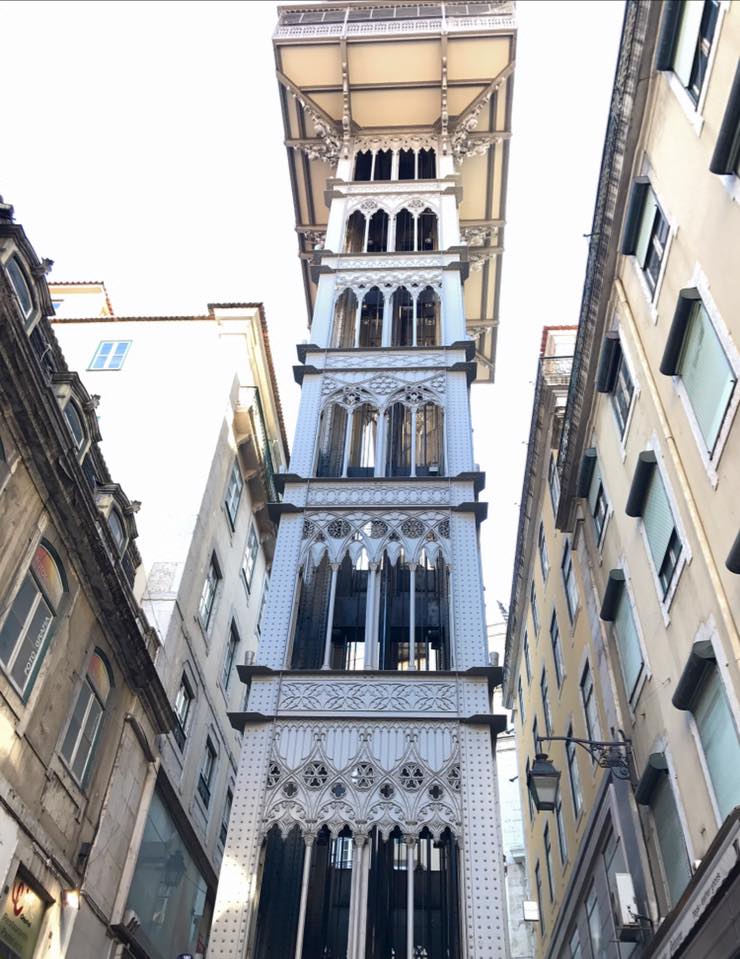
This is a very popular attraction and this is what the lines look like on a good day:
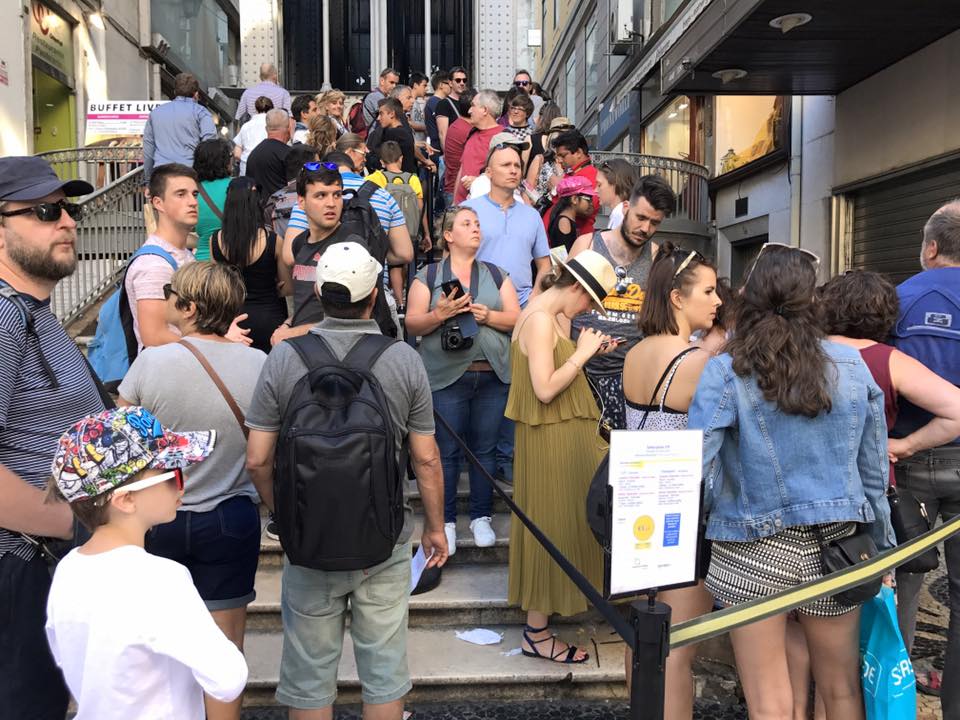
But, I don’t like lines, so I have a little secret for you. The better way to do this is to start from Largo do Carmo. Just behind the Carmo Convent (pictured below) is an entrance to get to the platform that takes you to the view point that all these people are waiting in line to visit. See the left hand, bottom corner of the picture below to see the walkway to which I am referring.
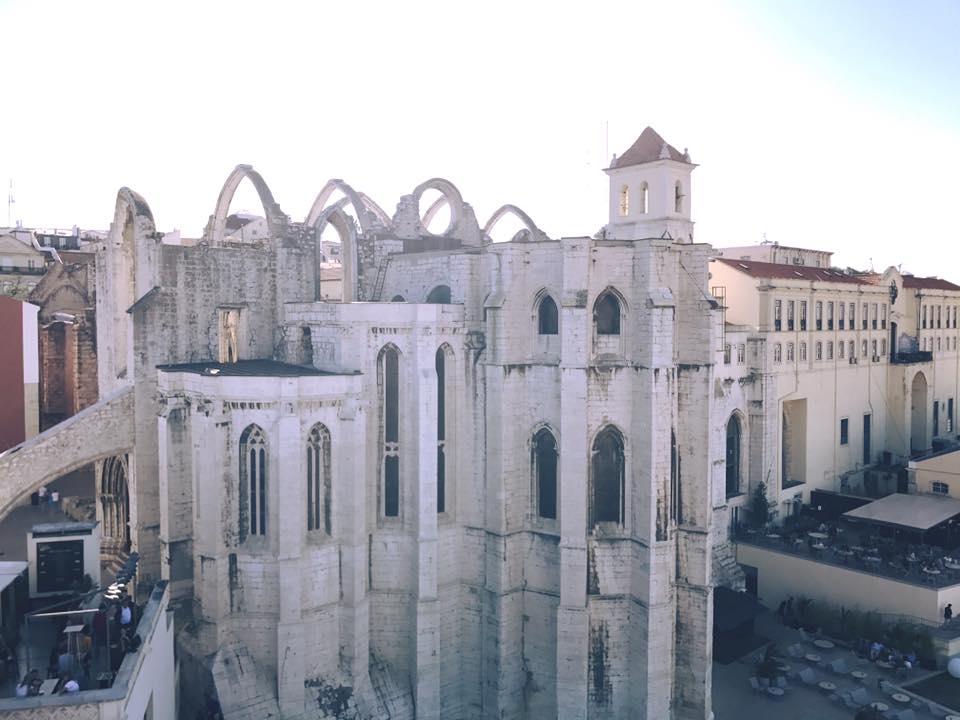
Once at the platform, you pay 1.50 Euro per person to climb this winding staircase:
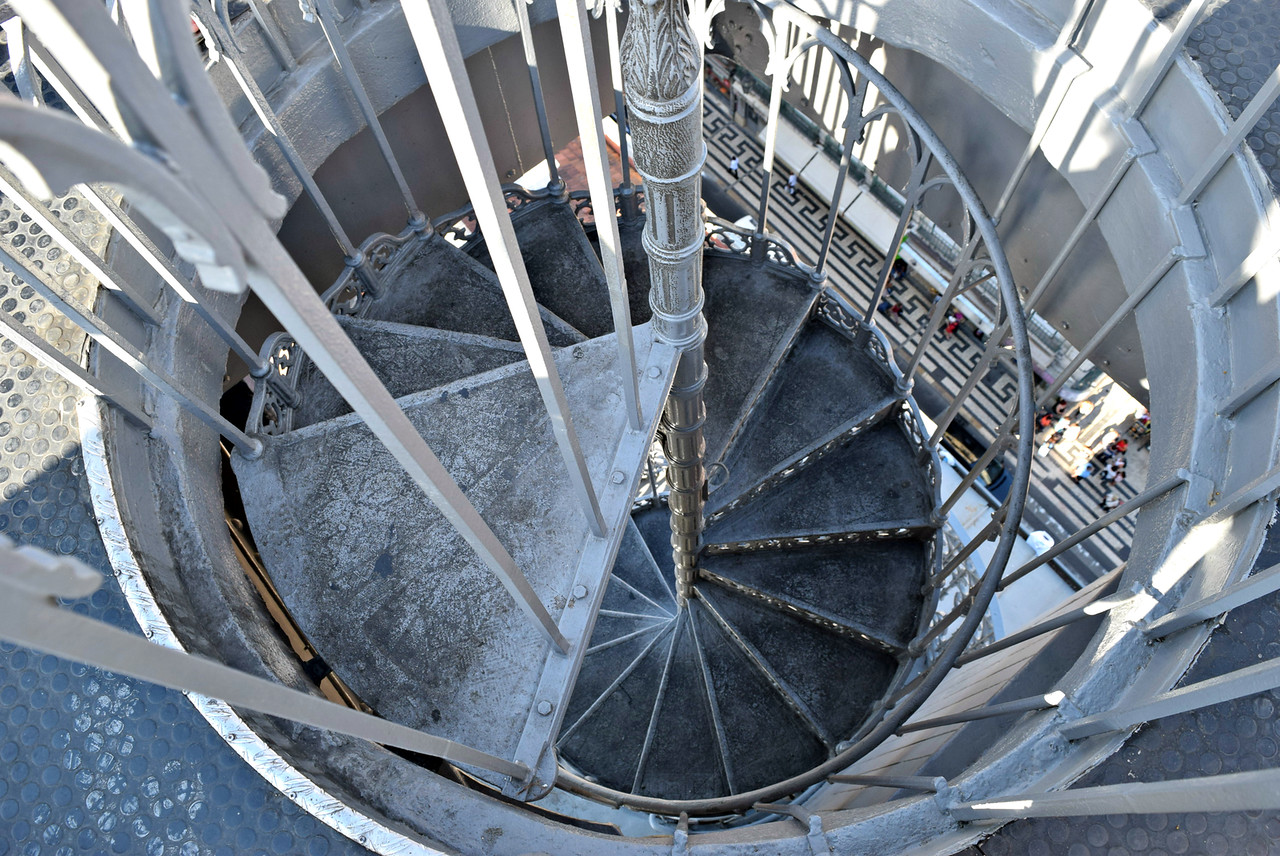
Which leads to a platform that has these views:
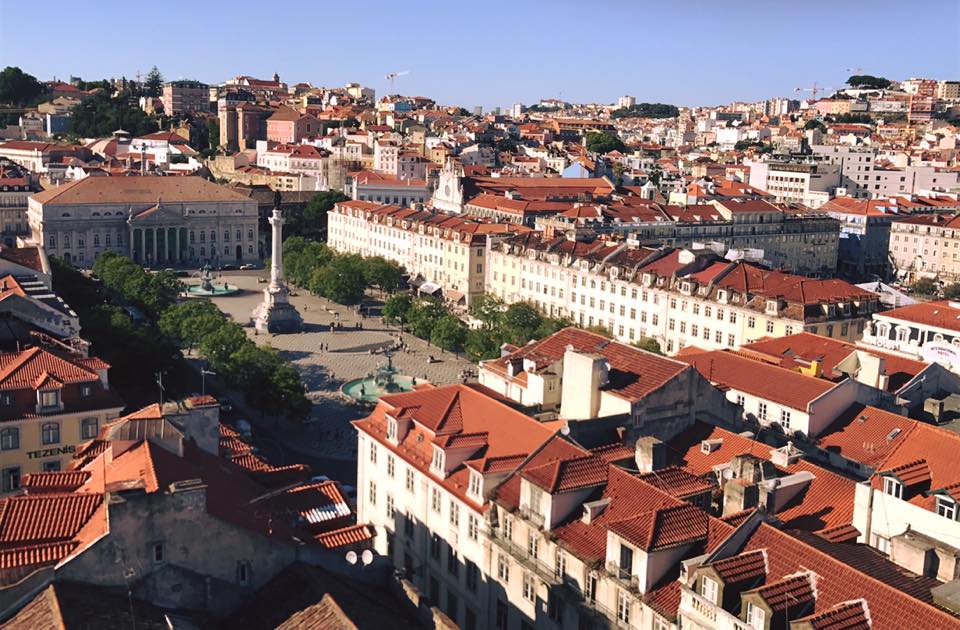
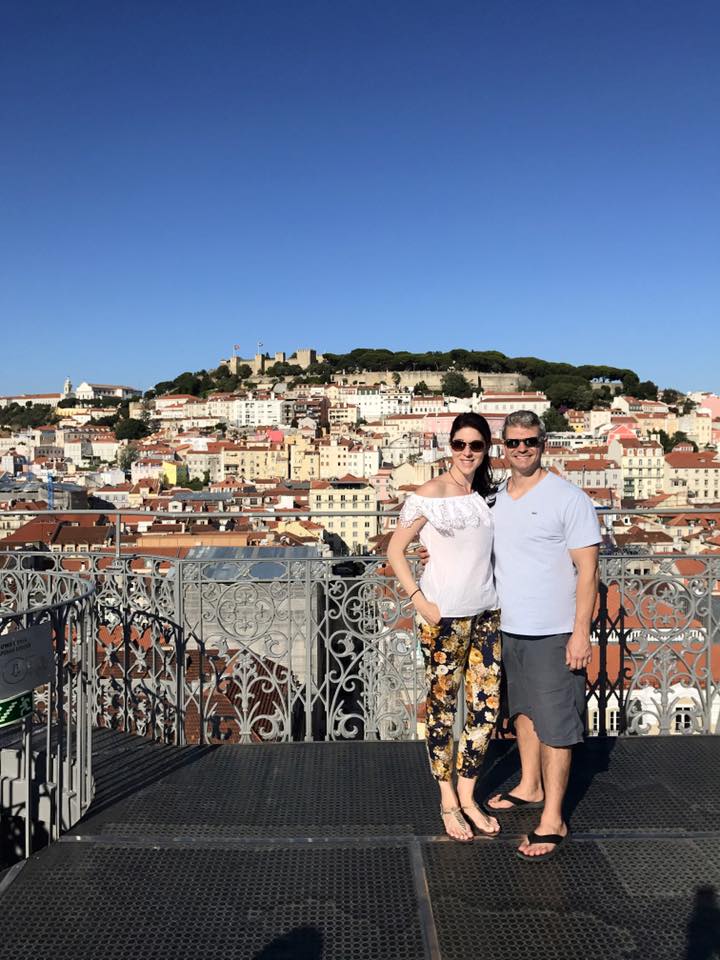
Then, instead of paying 5 Euro per person for a return ride on the elevator, you just ride it down to the street level. In other words, do the opposite of what the crowds are doing and save time and money! You’re welcome! This also put us in the perfect location to walk down Rua Augusta, which is lined with shops and restaurants. At the end is Arco Da Rua Augusta, which leads to Praça do Comércio.
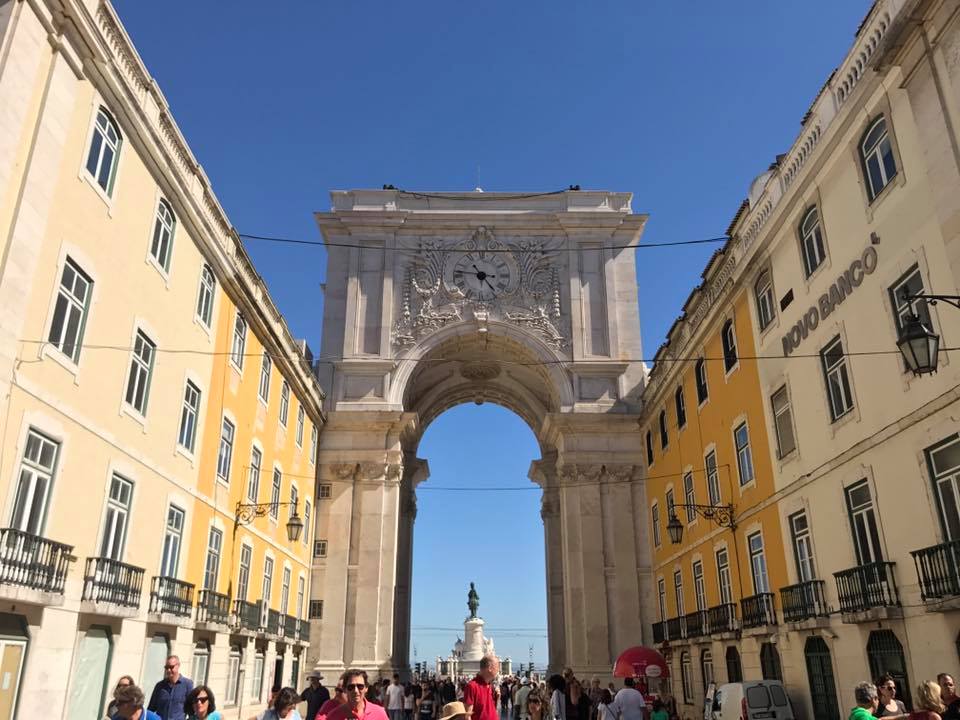
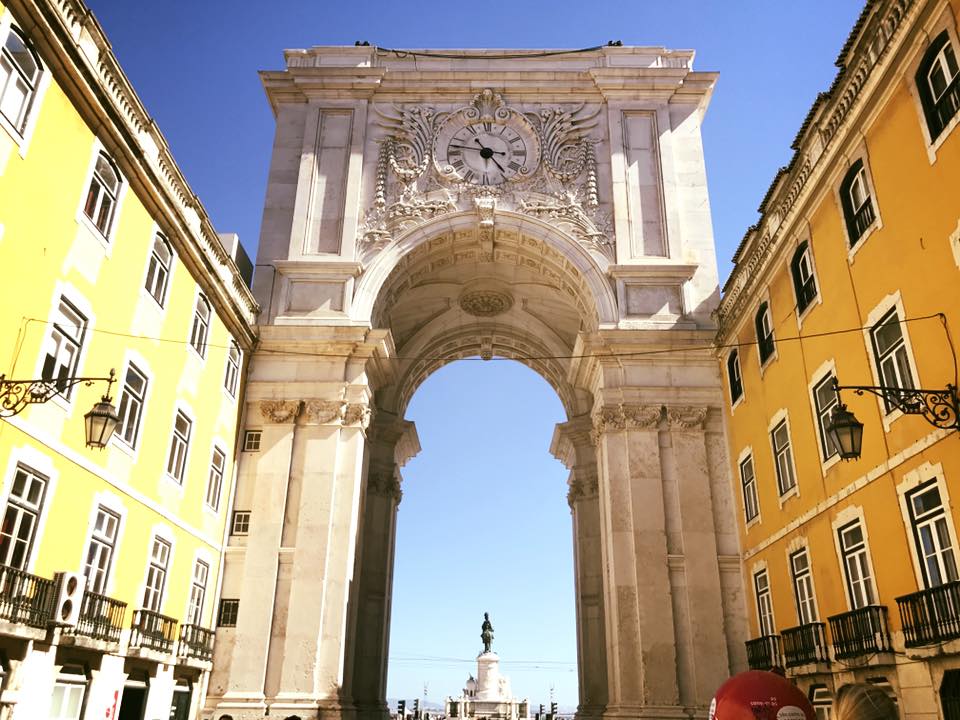
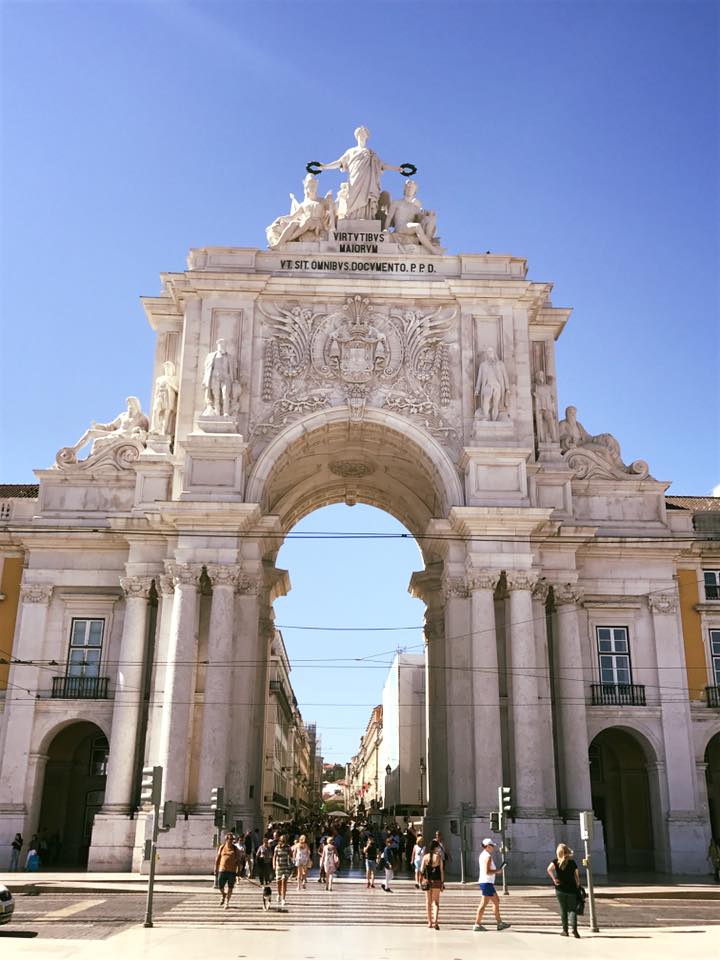
You can actually visit the top of this arch by taking an elevator nearly to the top, and then a steep spiral staircase to reach the terrace. We did not do this, but Mr. Google says the views from the top are as follows:
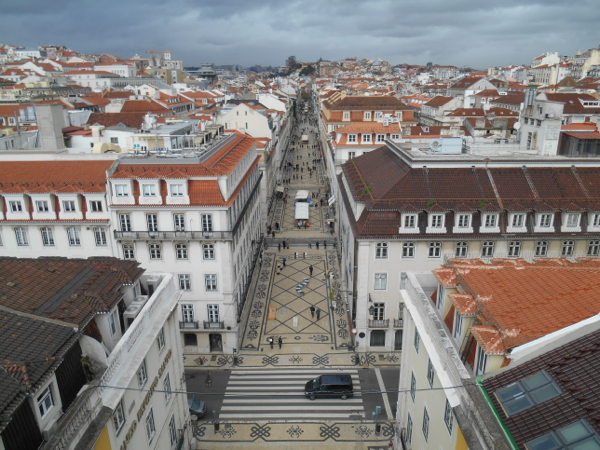
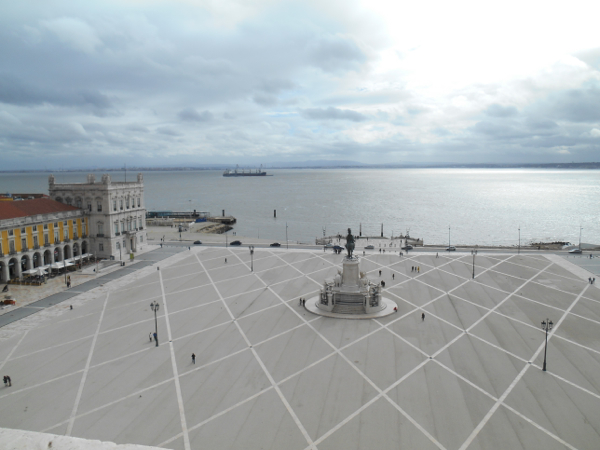
From Praça do Comércio, you can walk along the waterside and see some artists at work, like the guy behind me who constructs massive sand statues and then charges people to take photos of it. I mean, who doesn’t love a sand puppy!
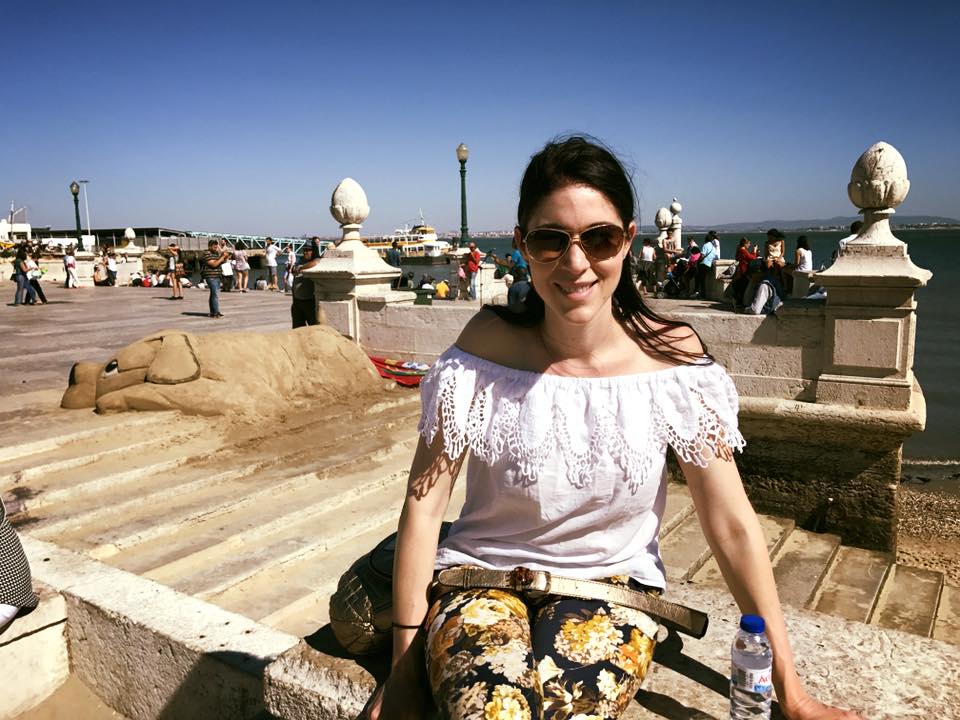
Or the rock sculpture garden that stretches for quite some way.
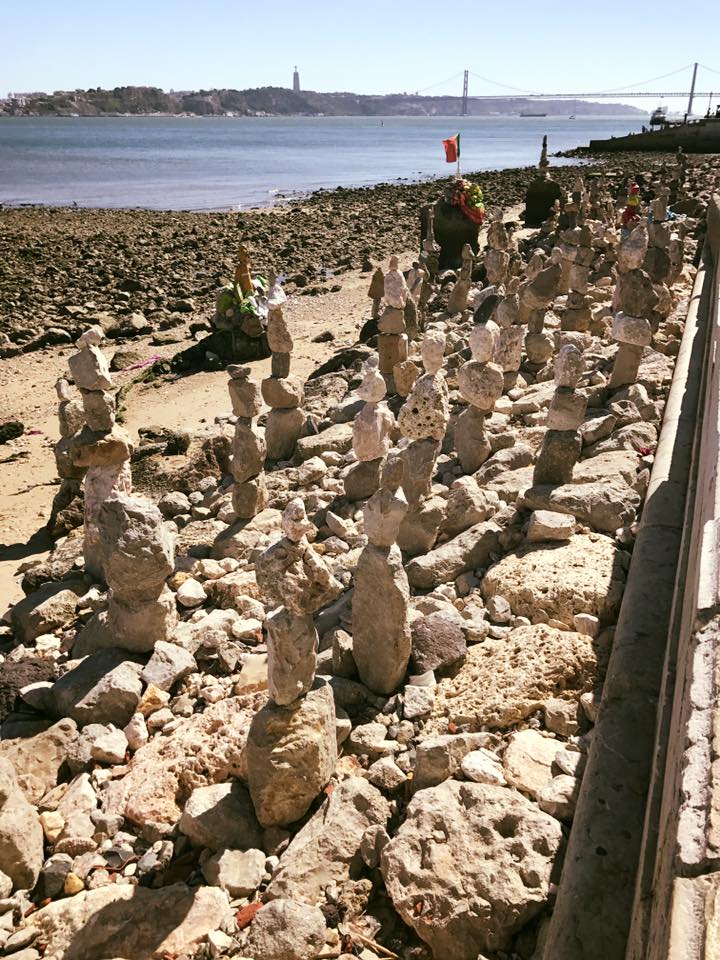
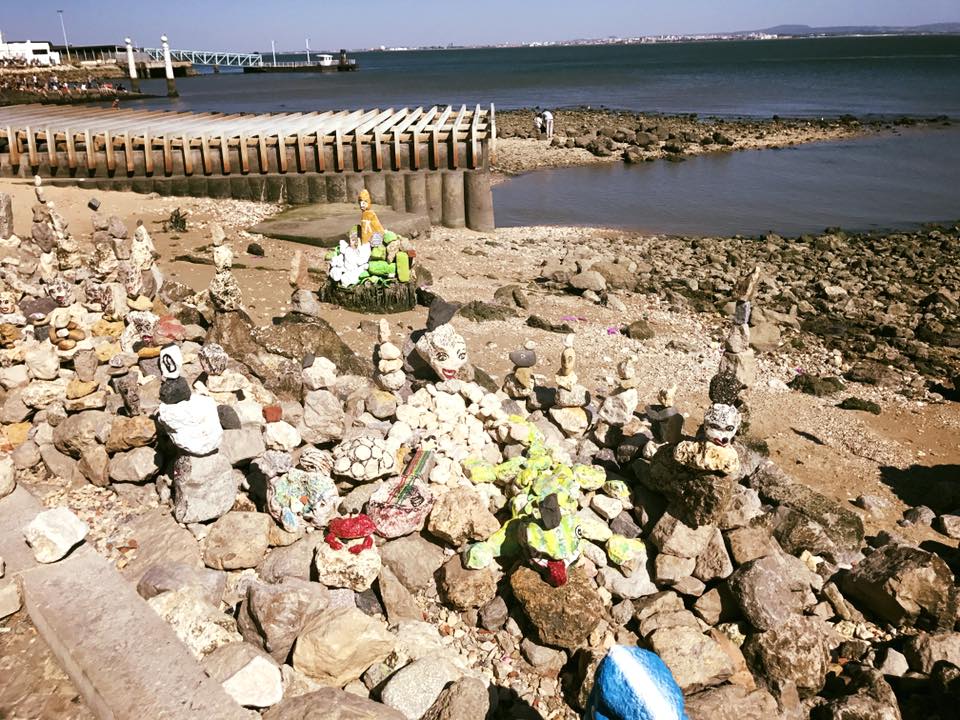
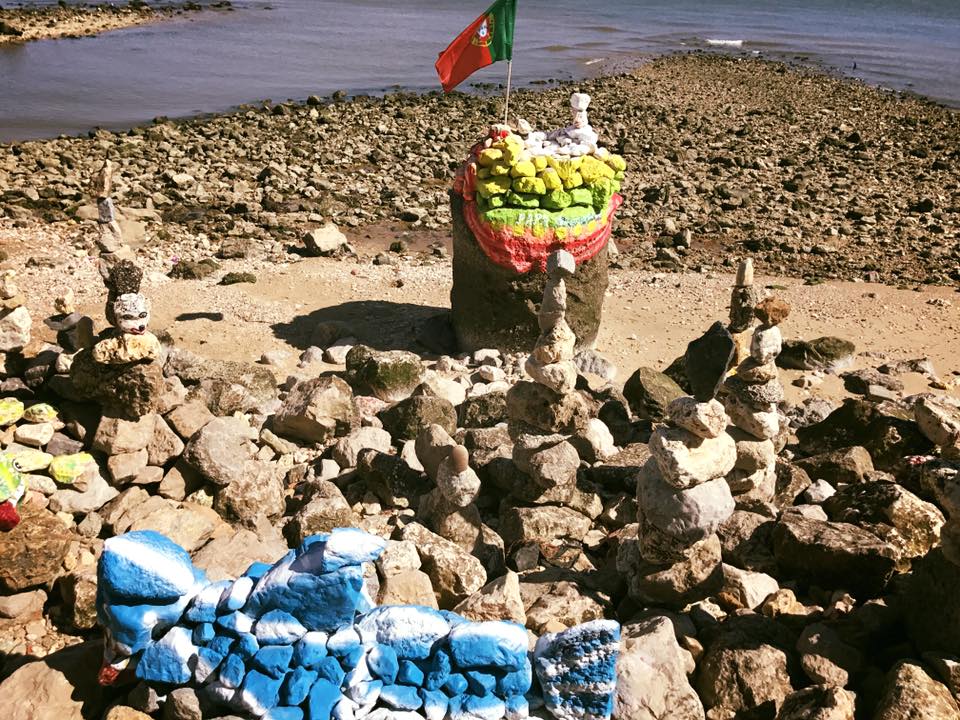
Our day ended with a stroll through the Chiado District to do a little shopping before dinner.
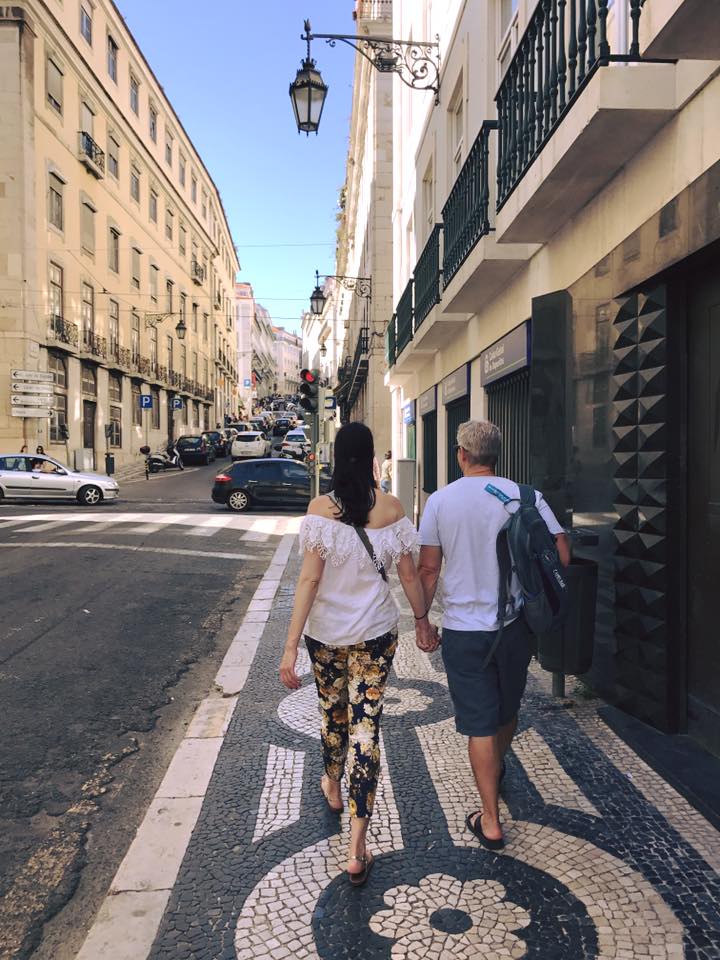
And that is where we came upon Sant’Anna, a ceramic factory dream come true! Their factory is actually in Belem, and you can arrange a visit there if you call ahead.
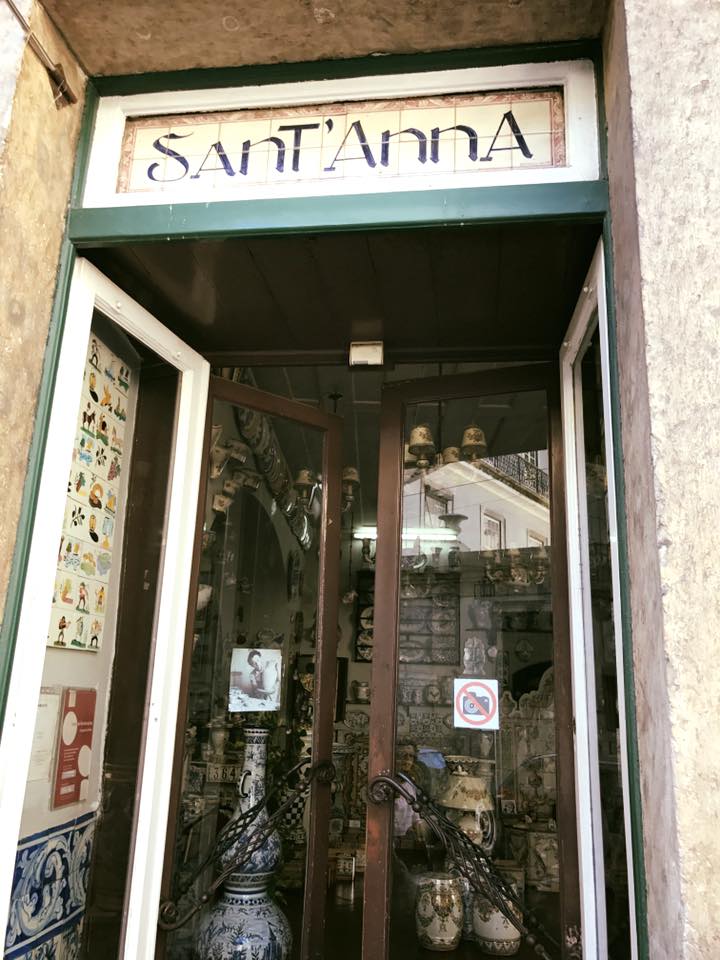
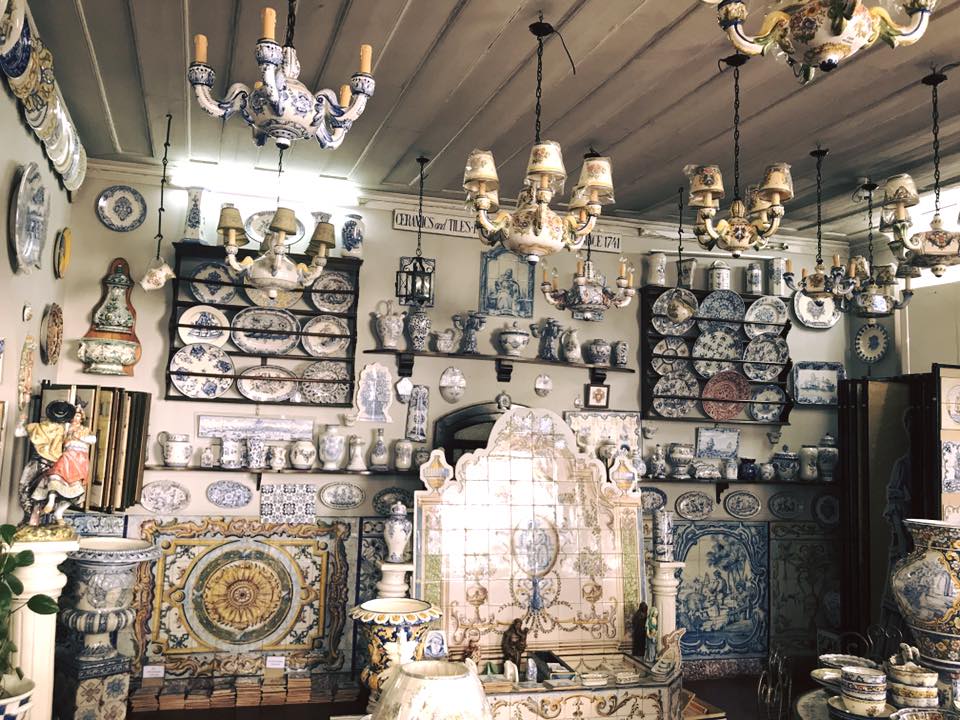
Lisbon is pretty much an outdoor tile museum, but there is actually a National Tile Museum that we did not get to visit. It is definitely on my list for next time, because it looks amazingly beautiful, and I am OBSESSED with tiles.
We also visited A Vida Portuguesa, which is a small boutique that sells authentic Portuguese products. I bought the most divine hand and body creams as gifts for myself and for others! We ended the day at one of Lisbon’s best, Belcanto, in the Barrio Alto District.
For dinner, we reserved Belcanto. The restaurant, by chef José Avillez, has two Michelin stars and is considered the best gourmet experience in Portugal. The mulit-course menus are modern takes on classic Portuguese dishes, including barnacles, a Portuguese delicacy.
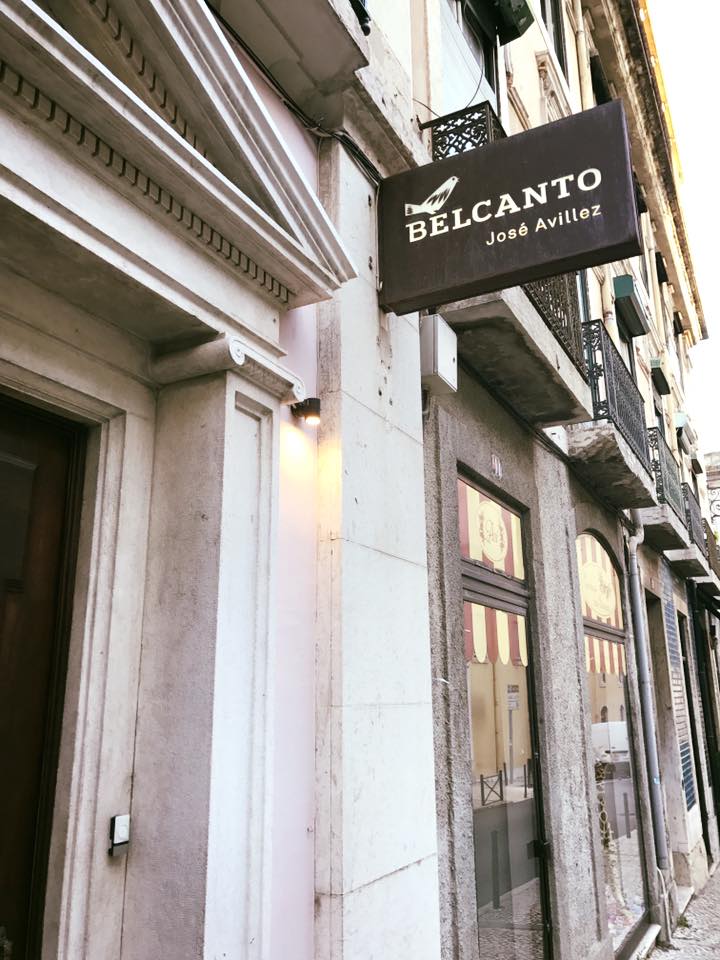
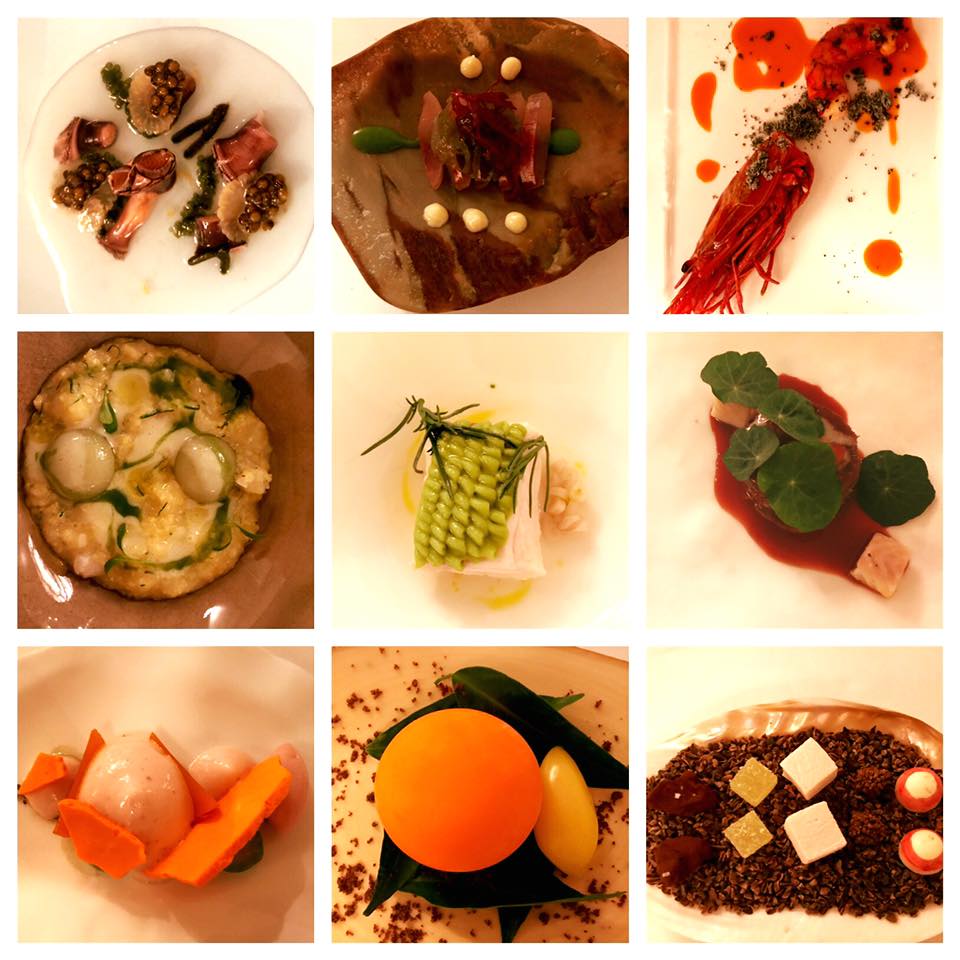
After dinner, all I wanted to do was visit Pink Street, but considering we hadn’t slept in two days, had just gotten off a transatlantic flight, had spent the entire day touring the city, and had to get up early to do it all again the next day, we retired to our hotel and crashed. But, in case you are interested, here is what pink street looks like, I found this photo online:
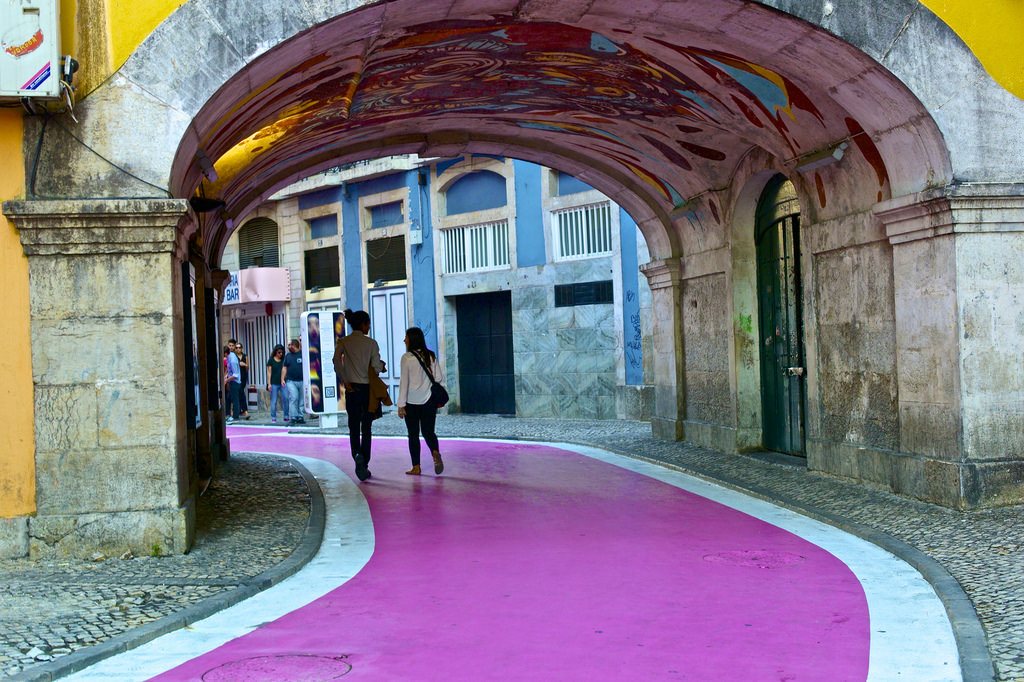
ALFAMA DISTRICT
Alfama is one of the oldest districts of Lisbon. It is a maze of narrow cobbled streets and ancient houses. It also has a very boho, artsy vibe. The best thing to do is to take the famous number 28 tram, which costs just under 3 Euro per person and runs all over the city. You can take the tram to Alfama and spend an afternoon wandering the neighborhood streets and admiring all the tile and street art.
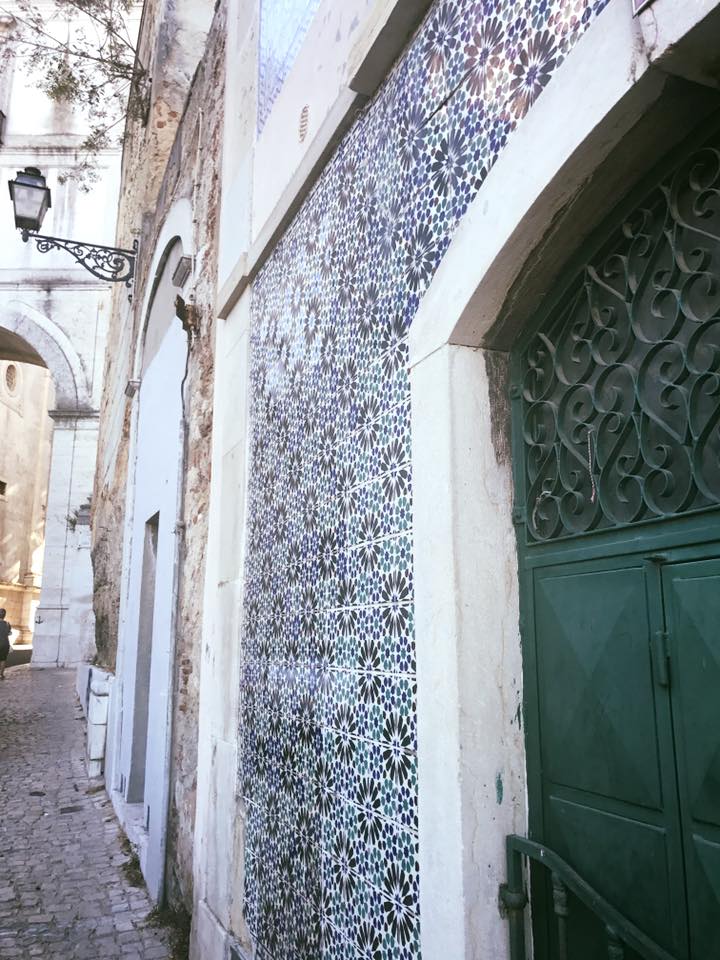

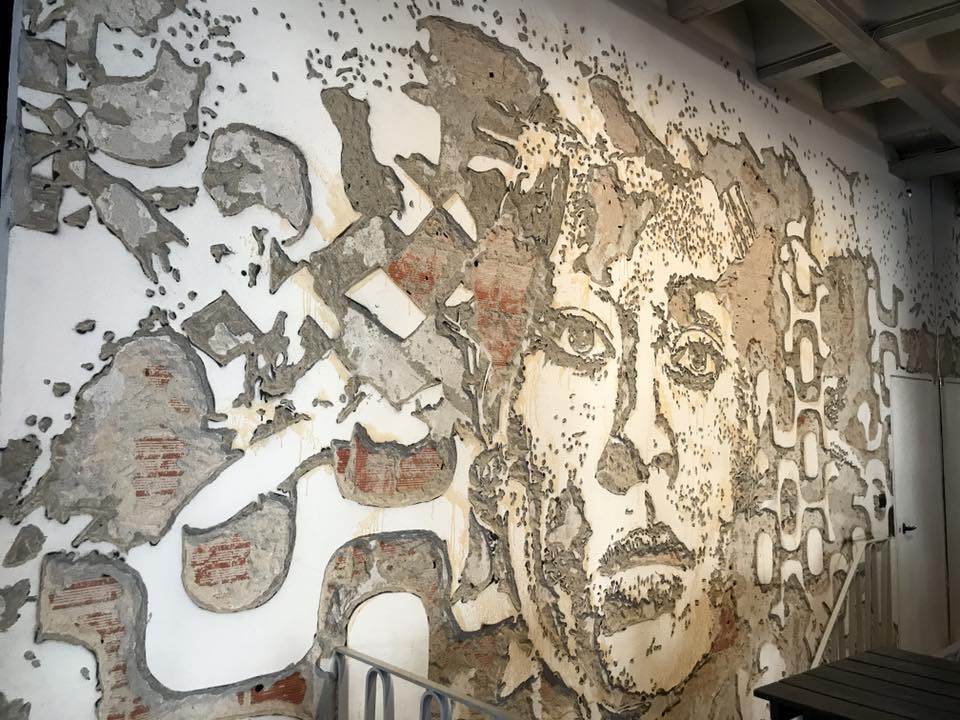
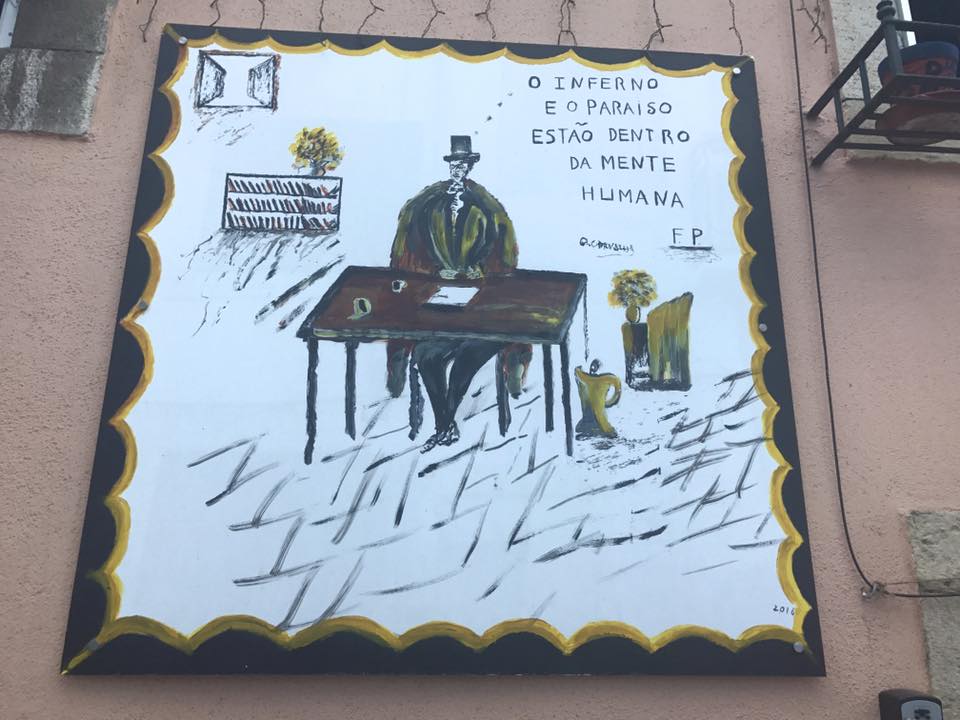
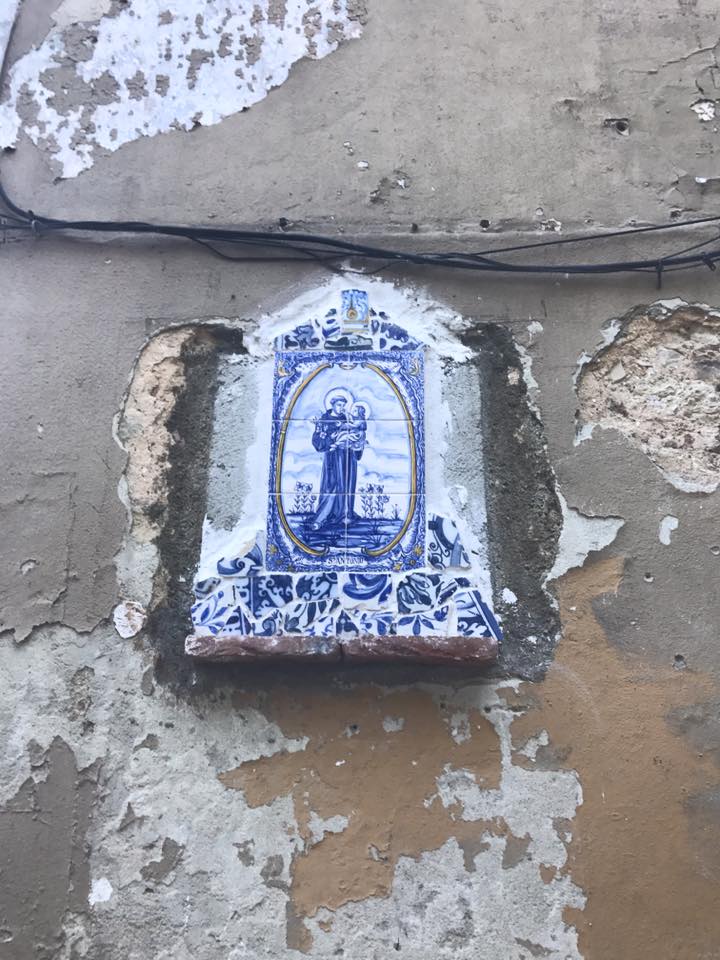
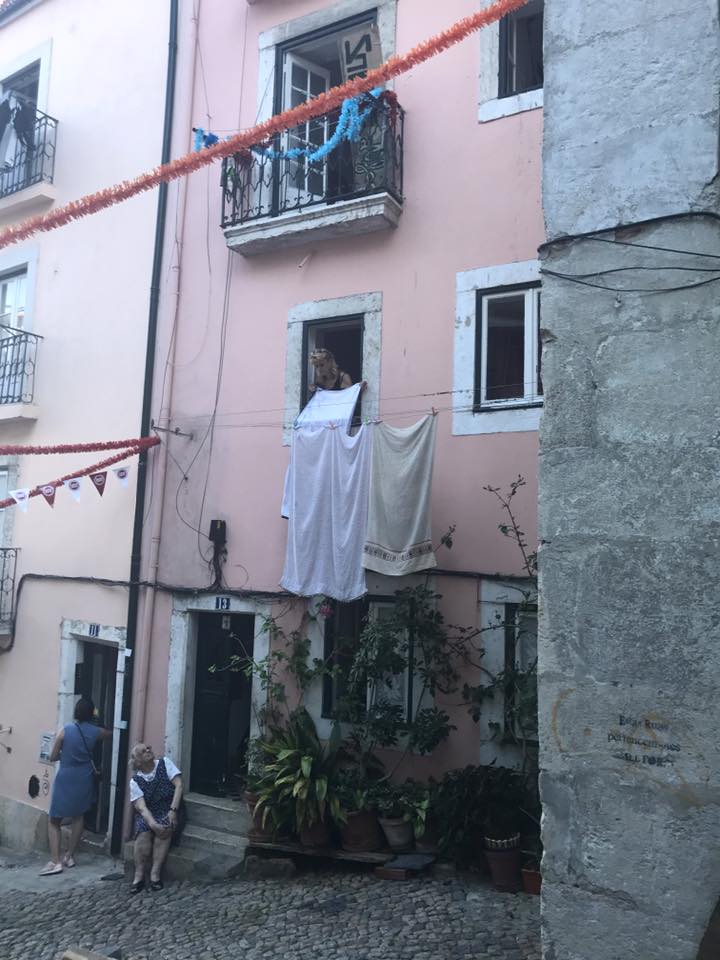
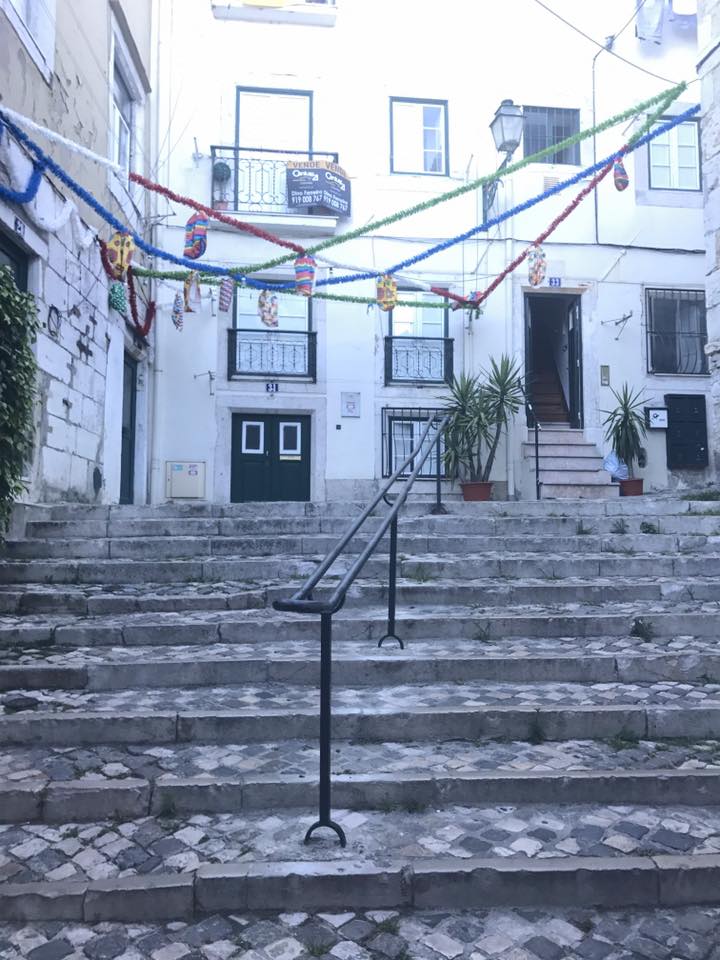
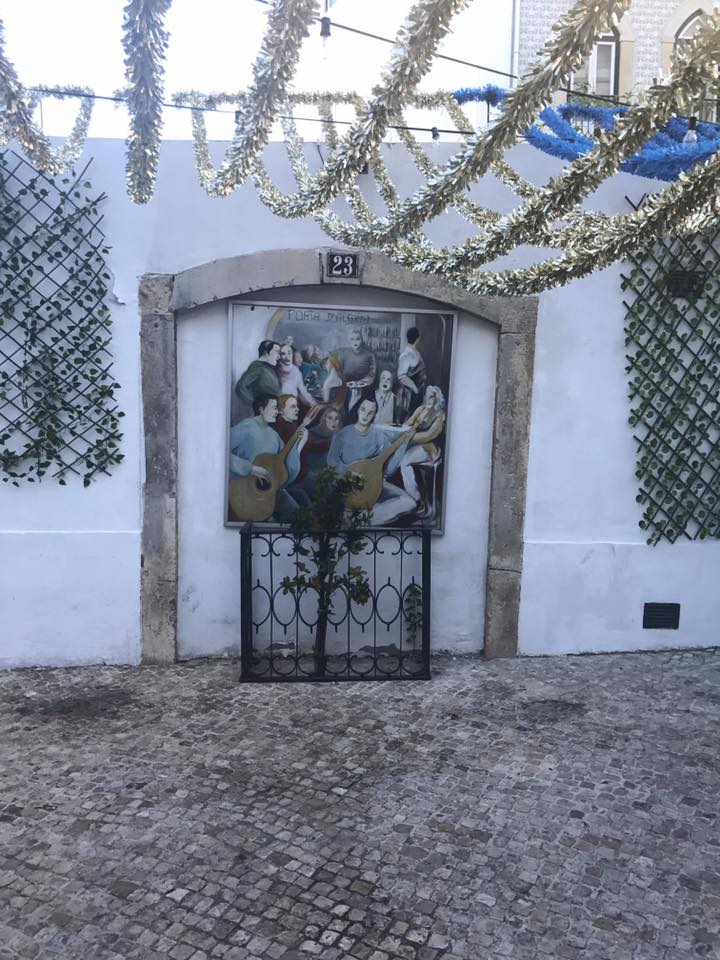
Just make sure that at around sunset, you make your way over to Miradouro de Santa Luzia, a beautiful terrace next to the church of Santa Luzia to catch the beautiful sunset from the terrace and see the gorgeous views of Alfama.
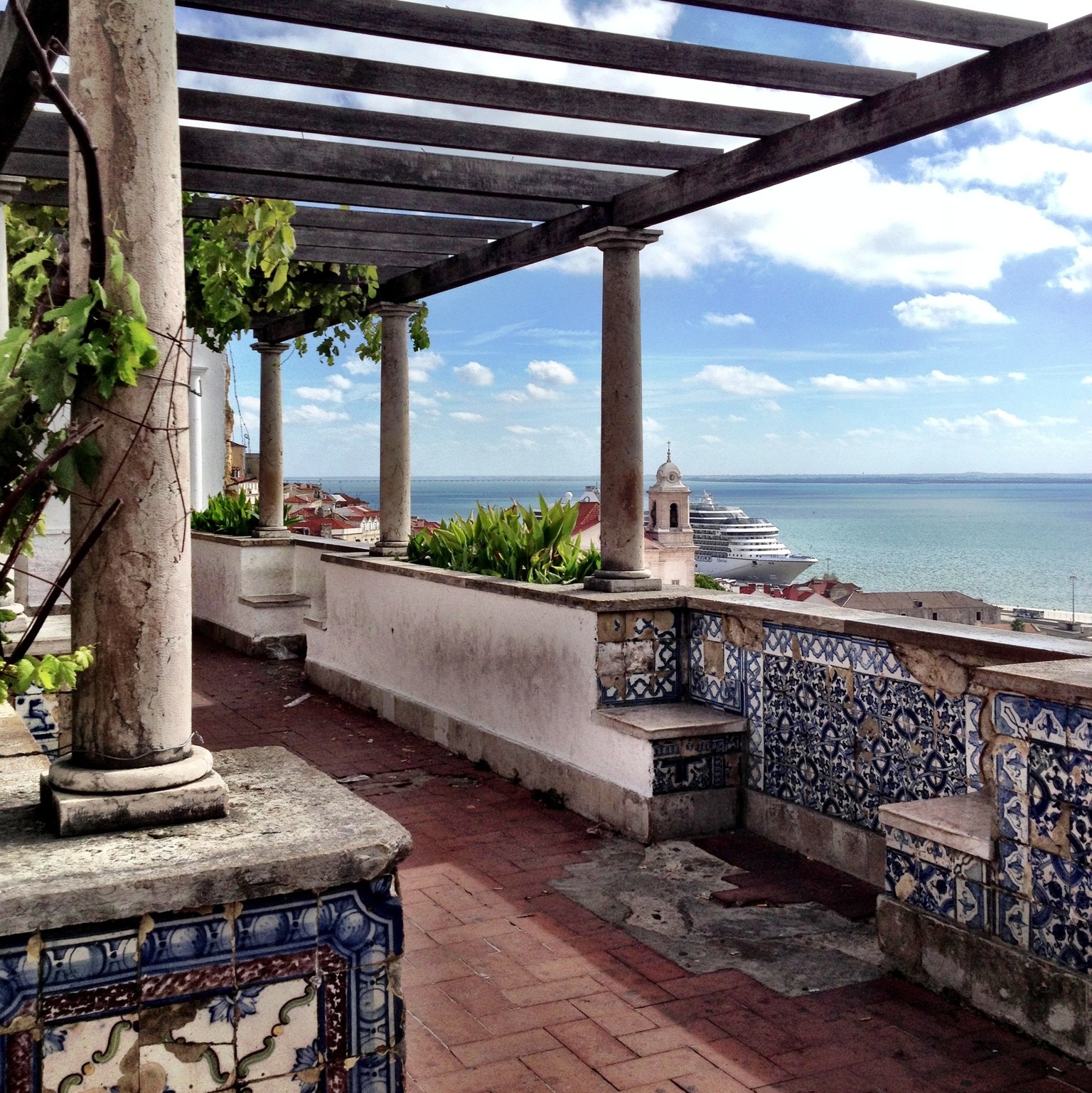
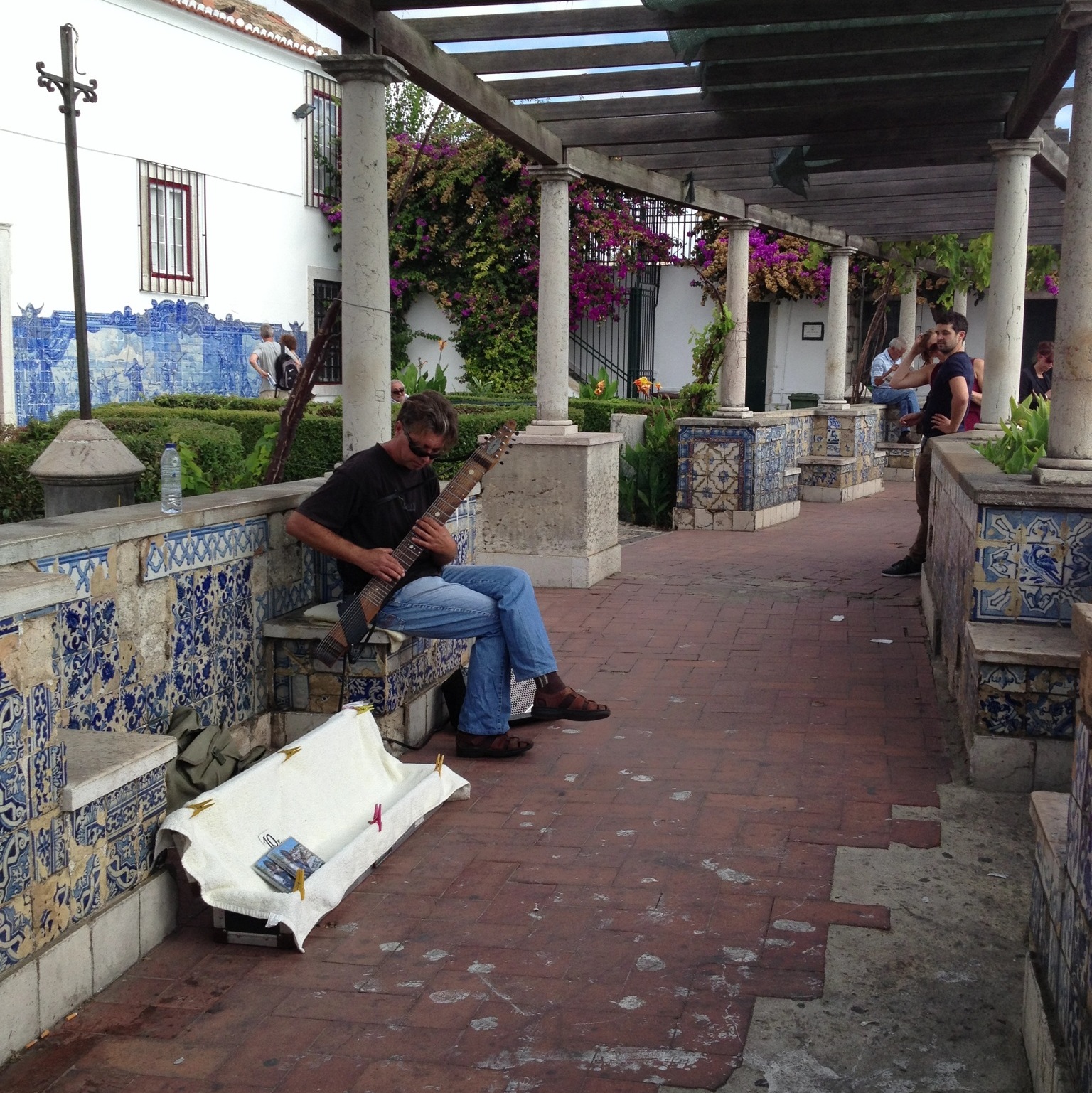
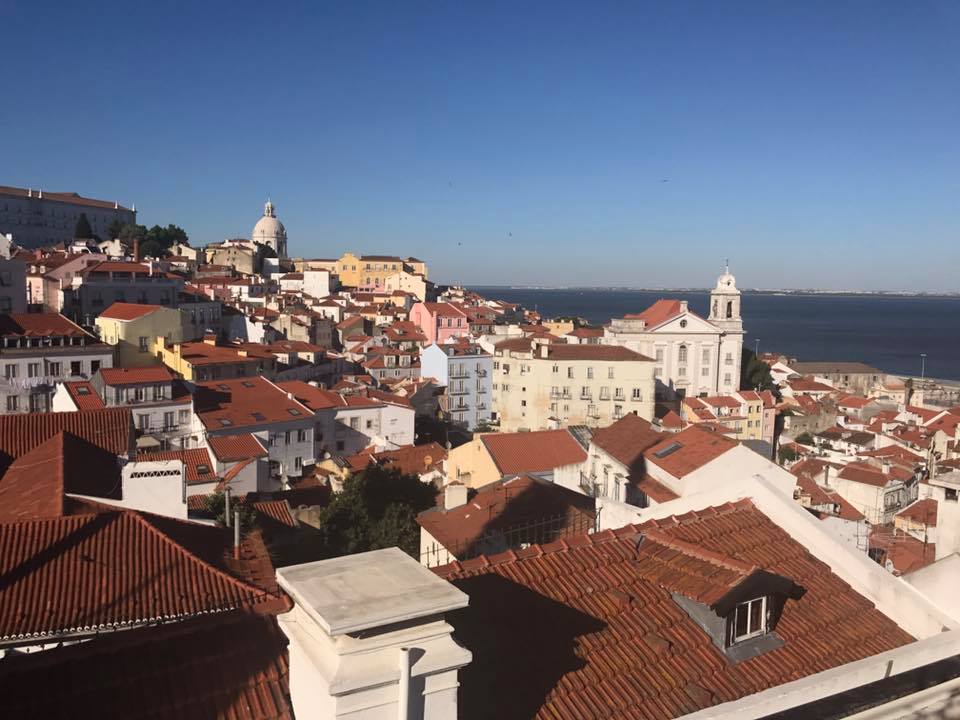
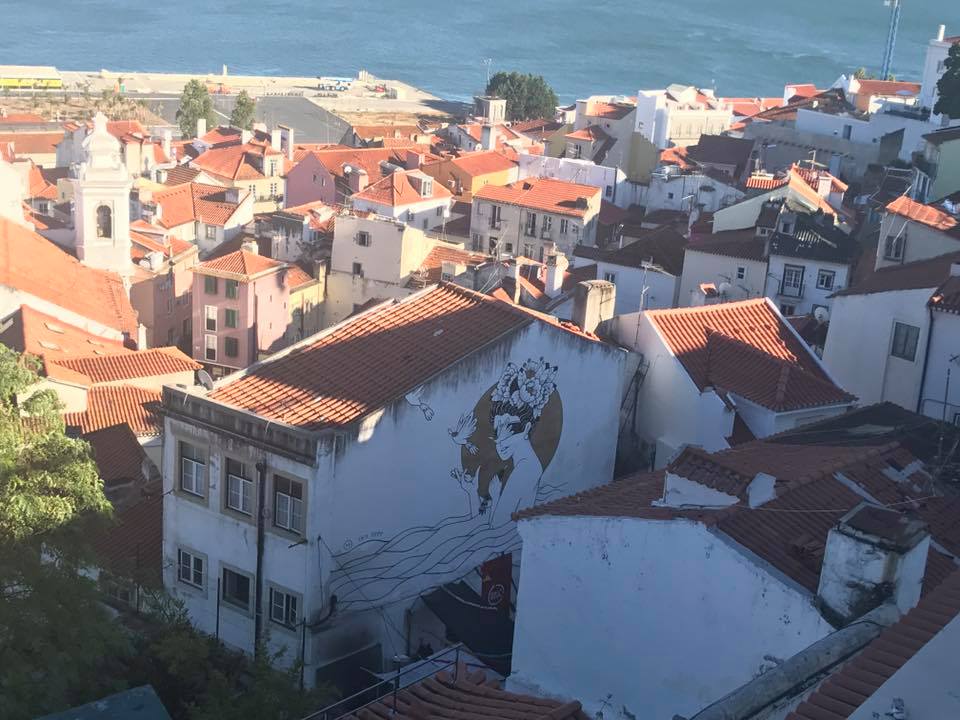
You might just catch some local musicians playing Fado, a traditional folk music genre unique to Portugal and which got its start in Lisbon. You can also opt for a famous Fado dinner where you can hear and watch a live music performance while enjoying dinner. The most famous places for such an experience are Clube De Fado and Sr. Fado de Alfama, both in the Alfama district.
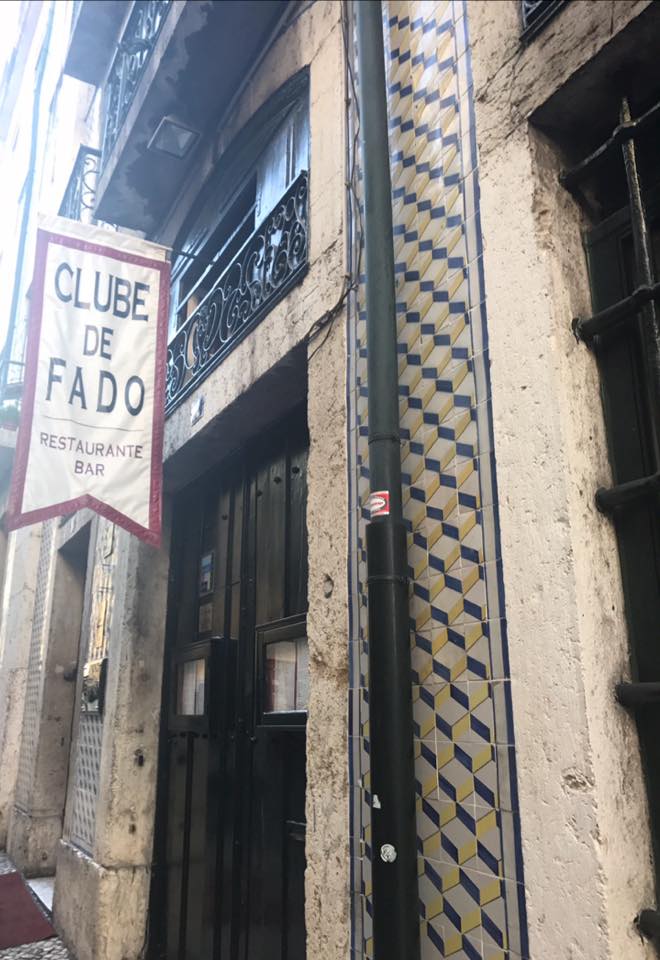
After our short little weekend trip to Portugal, I can say that I agree with the hype. Lisbon is an overlooked city in Europe; but, it is indeed one of the most unique and charming, and provides one of the best bangs for your travel buck! Lisbon is very affordable. The food and wine are fantastic, and at a fraction of the cost of other European cities. It is also easy to navigate (by walking or using trams, tuk tuks, and Uber), it is clean and safe, accommodations are affordable, and there are a lot of free or low cost attractions to visit. Take my advice and at it to your list of European destinations. You will be so glad that you did!
